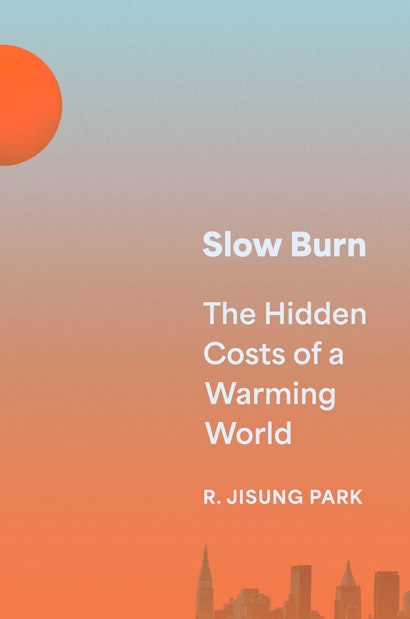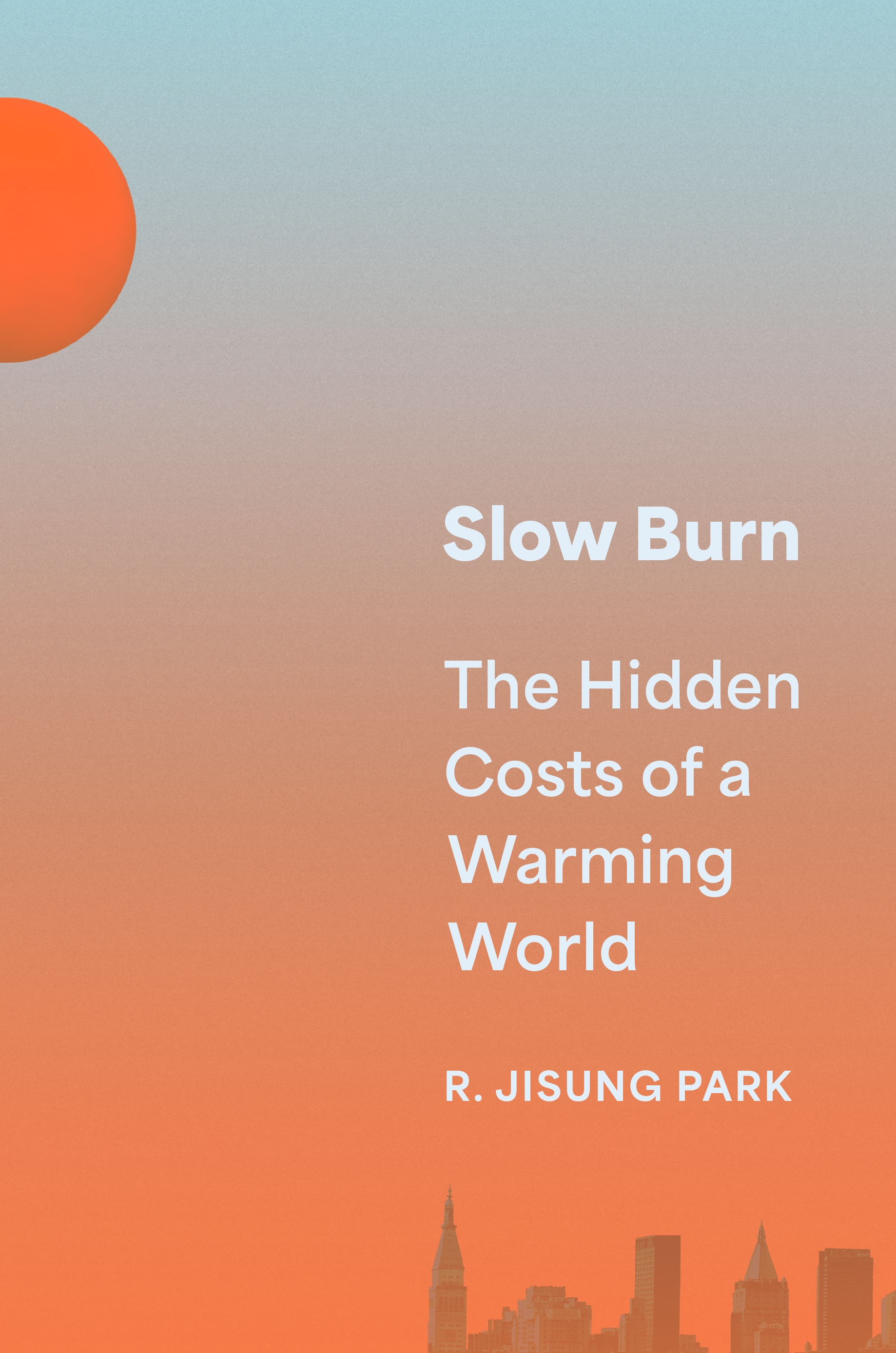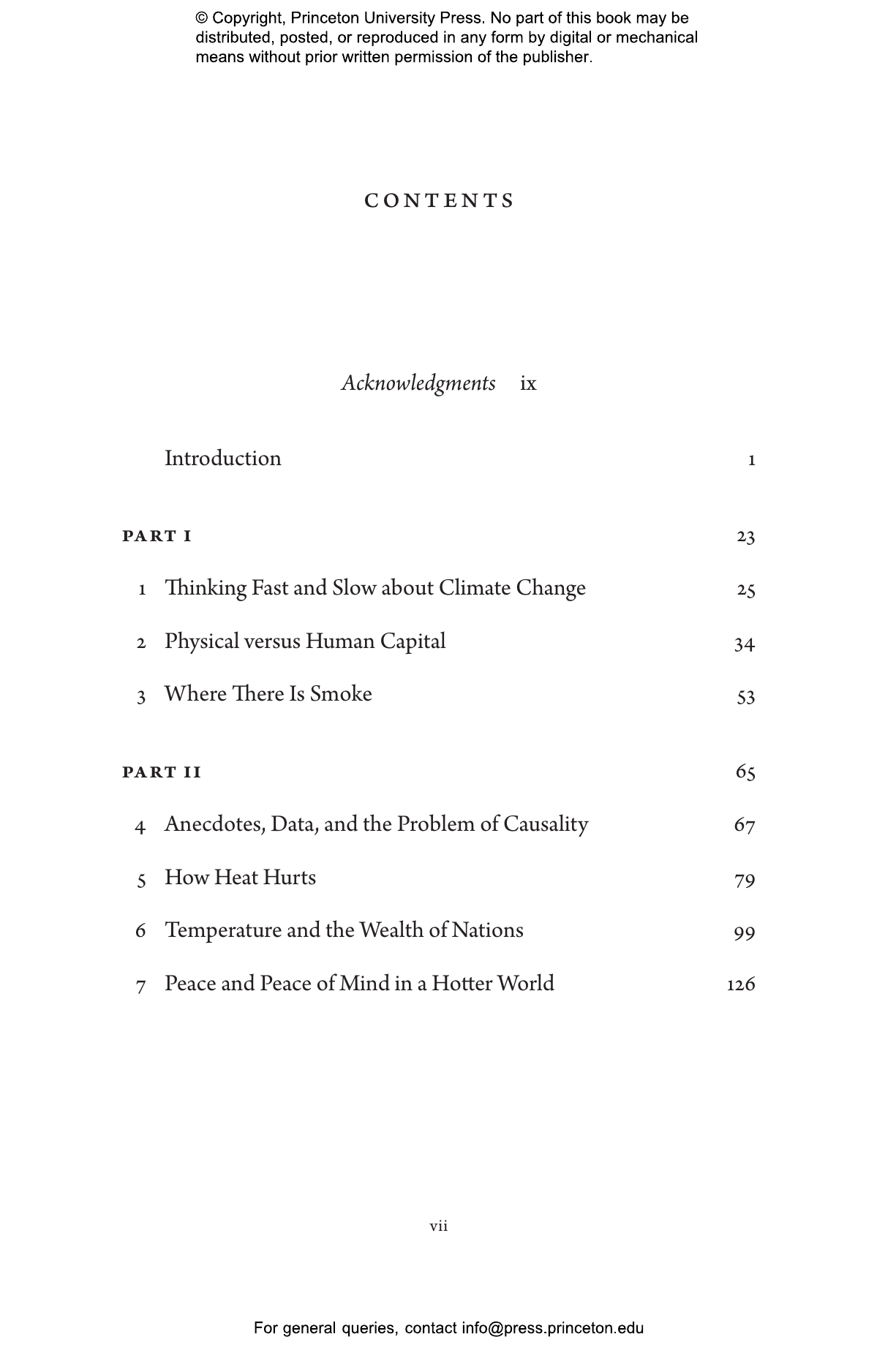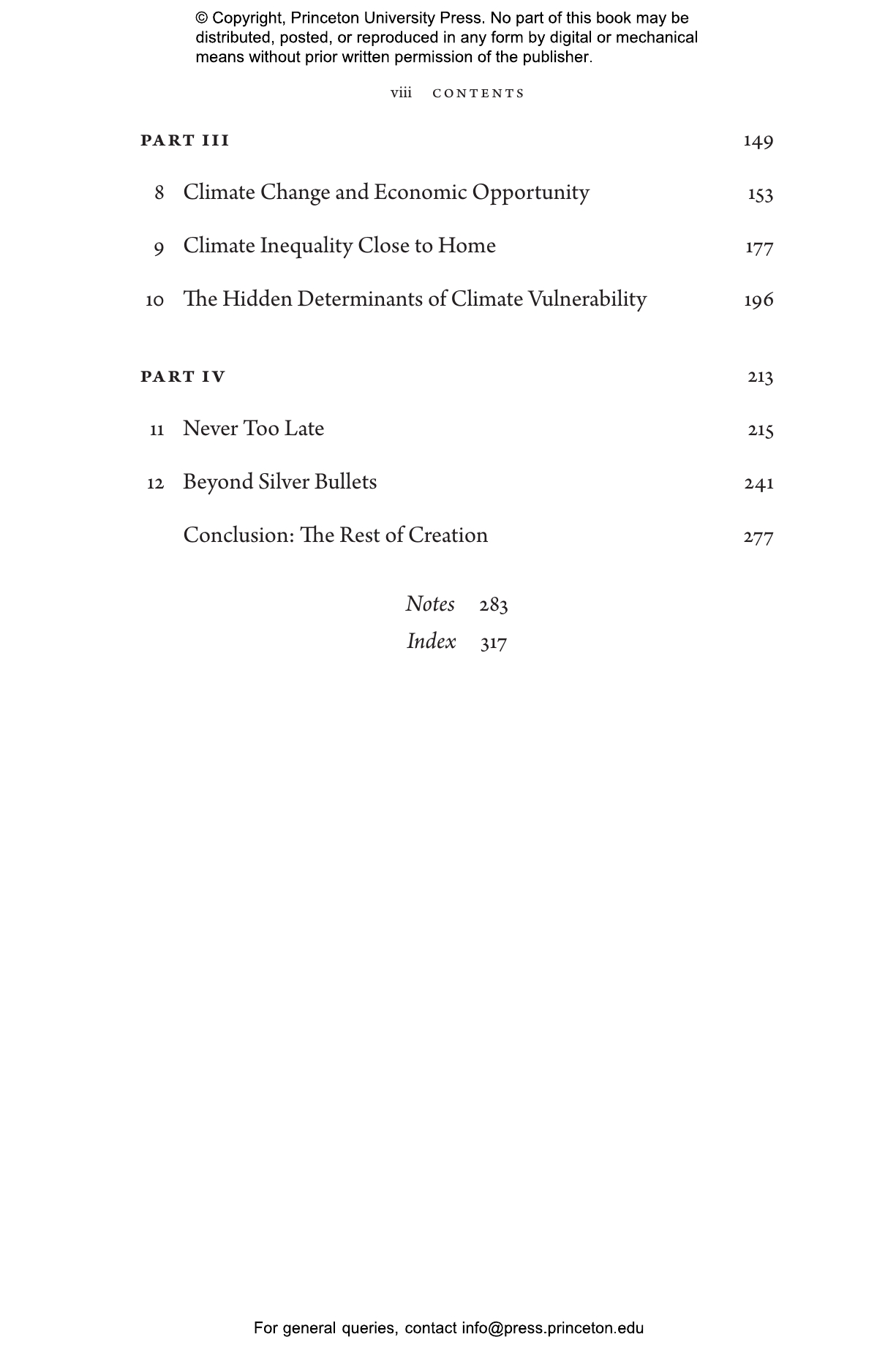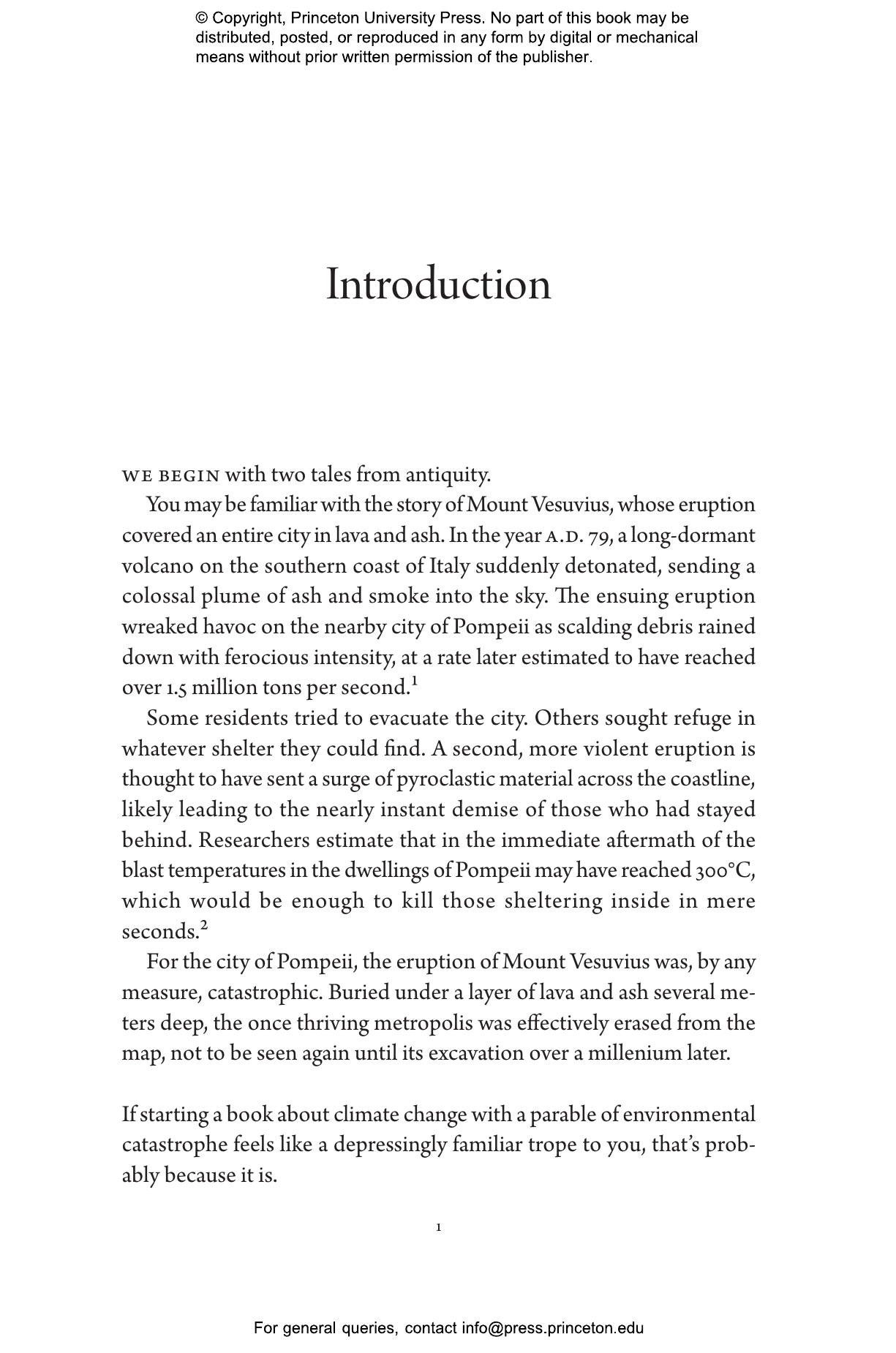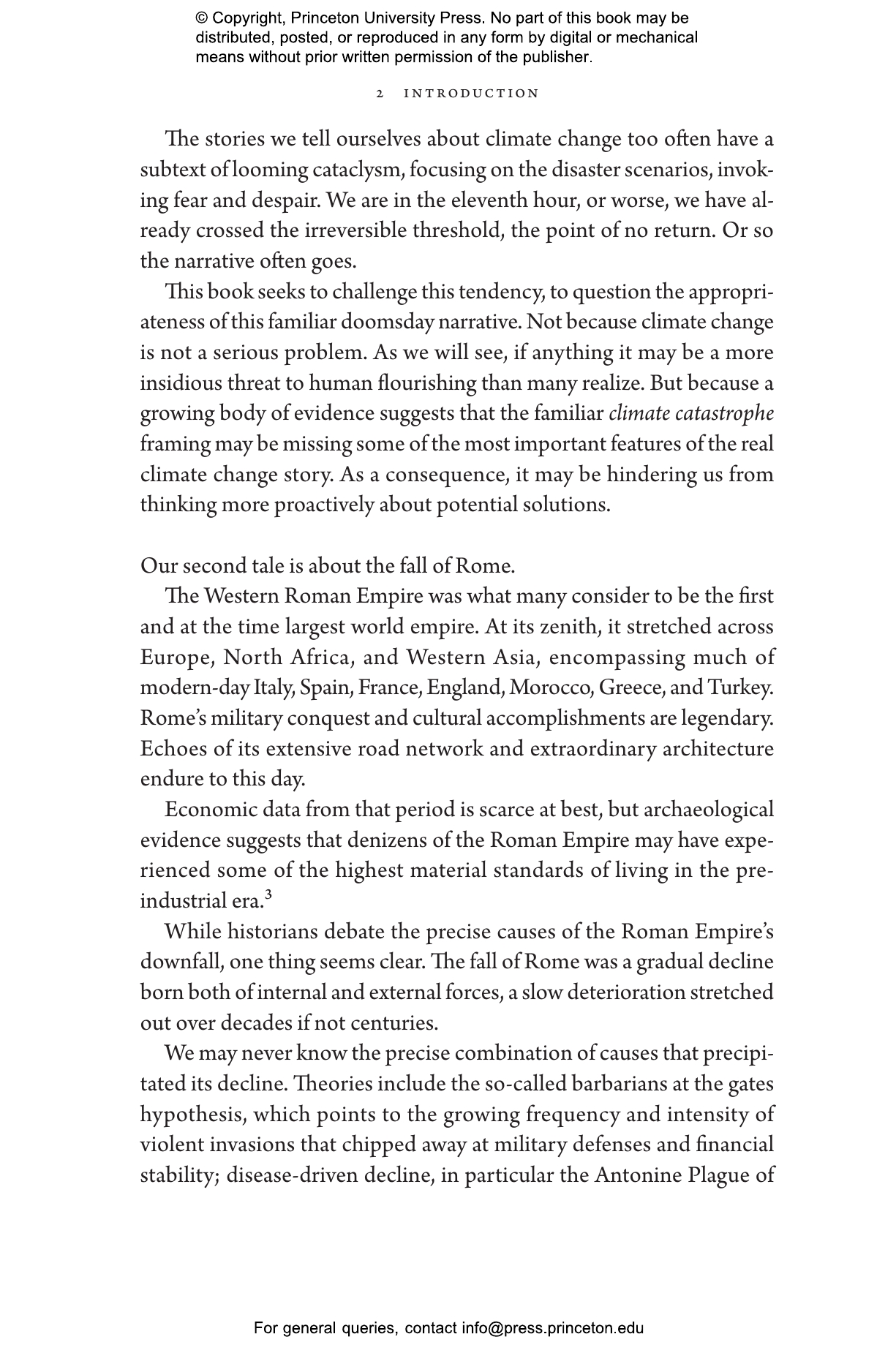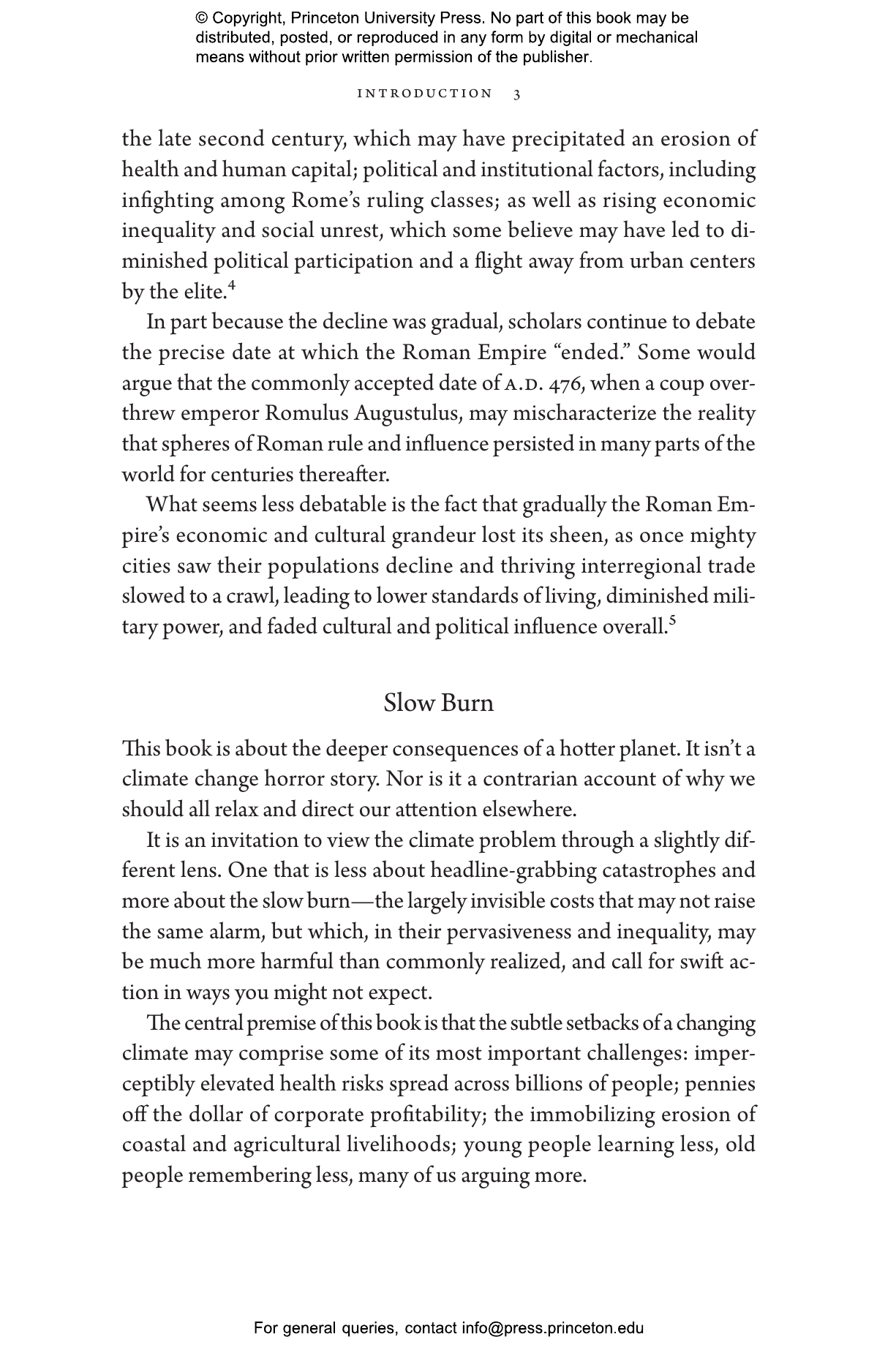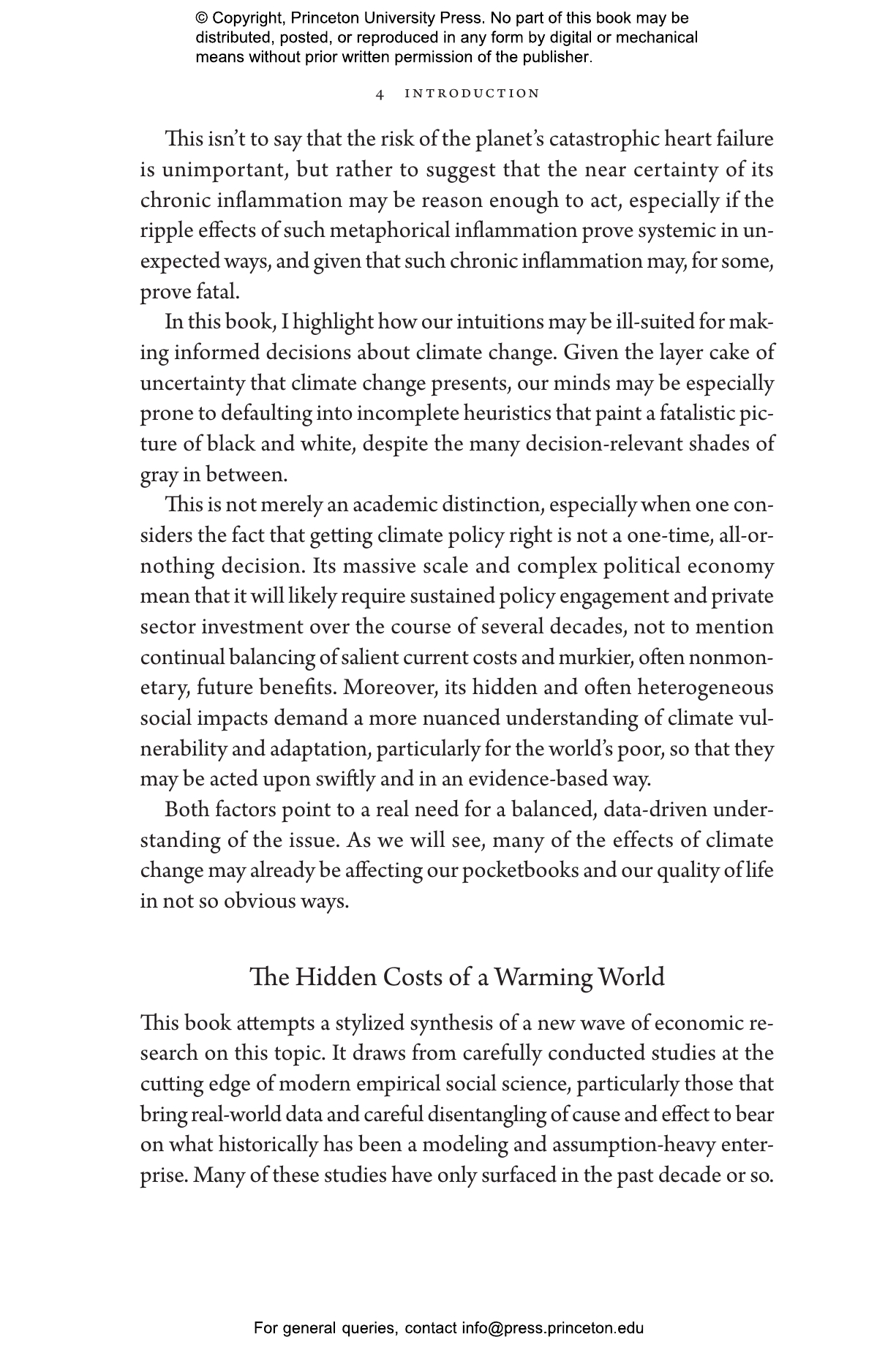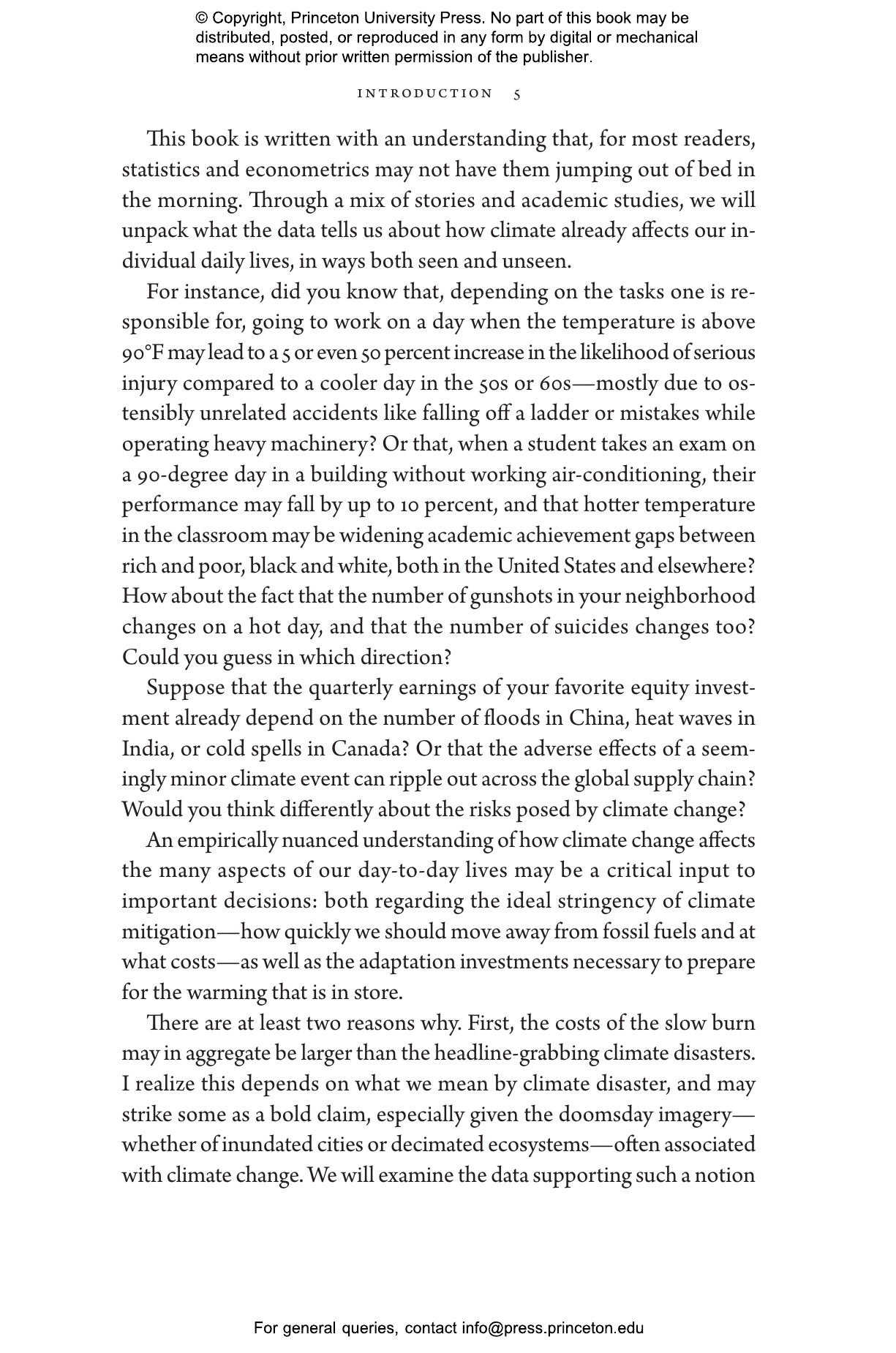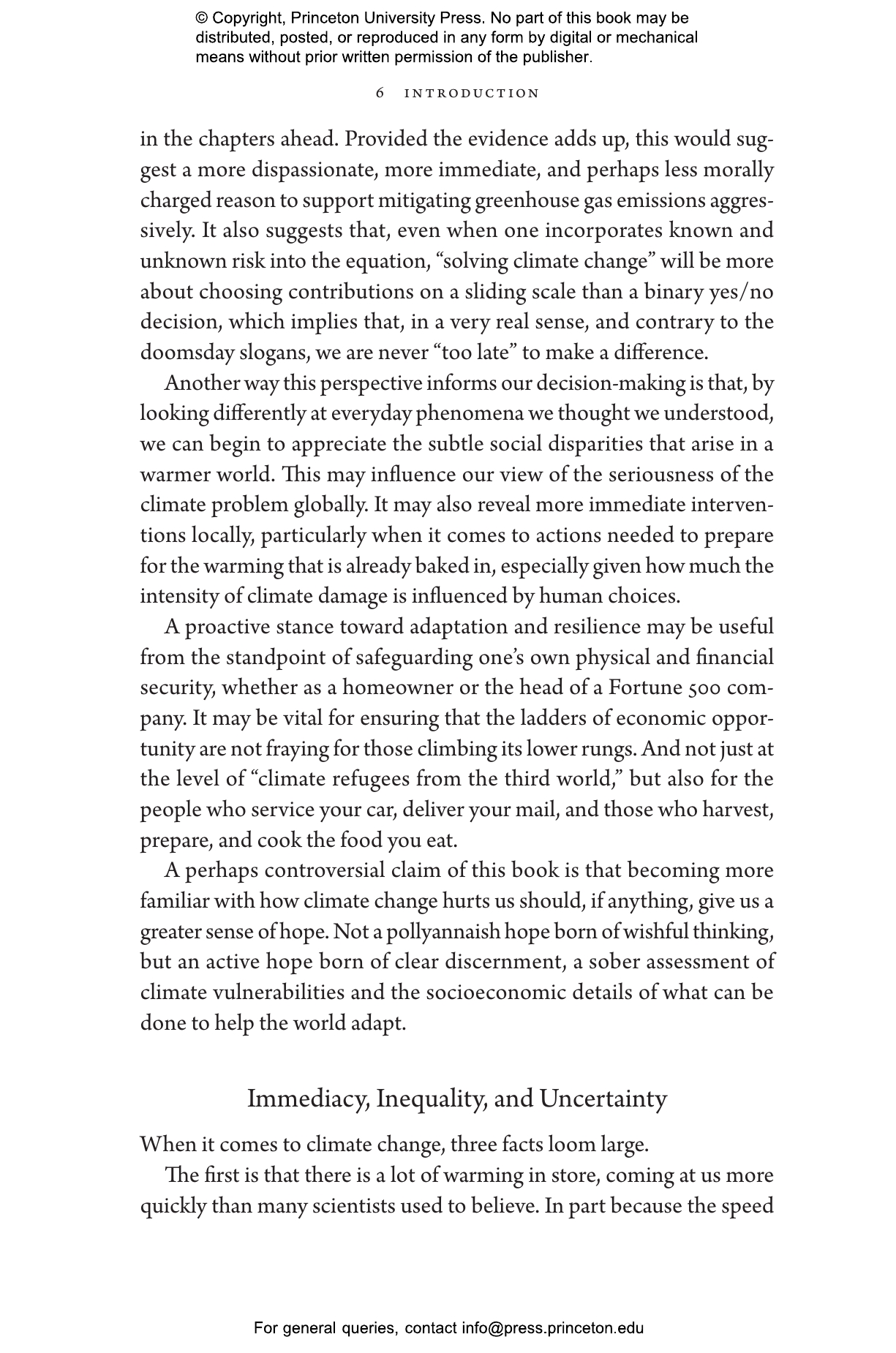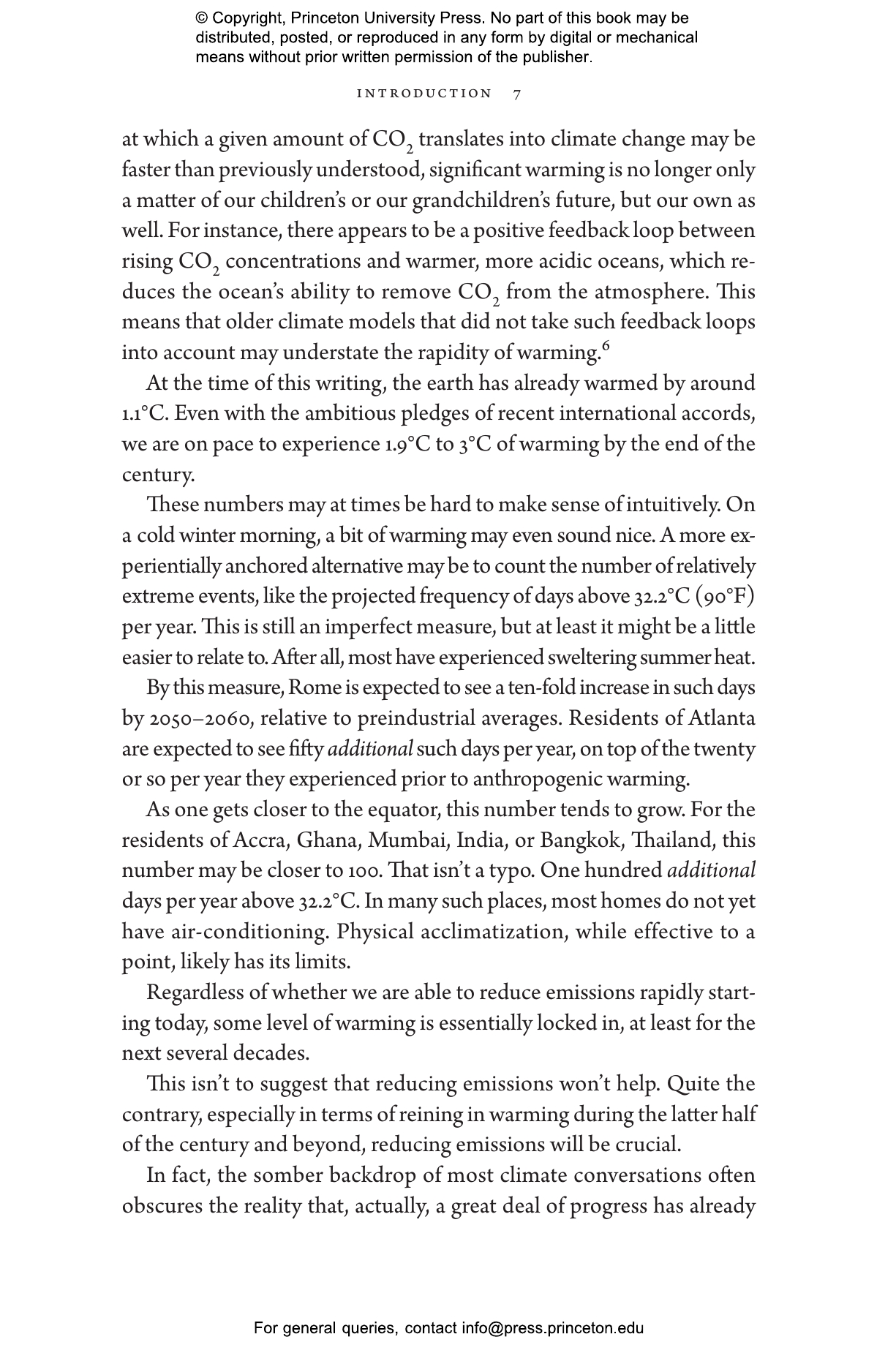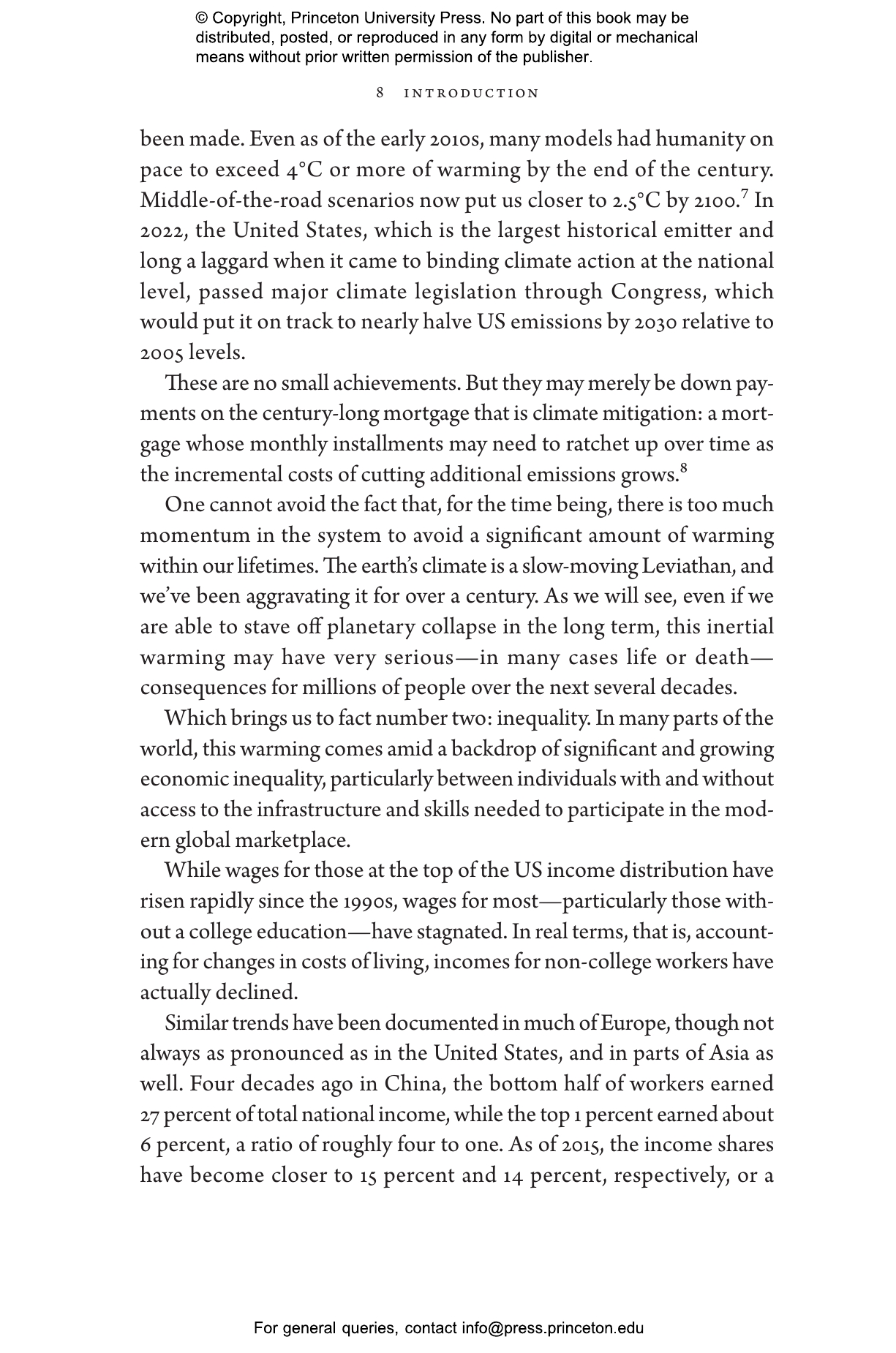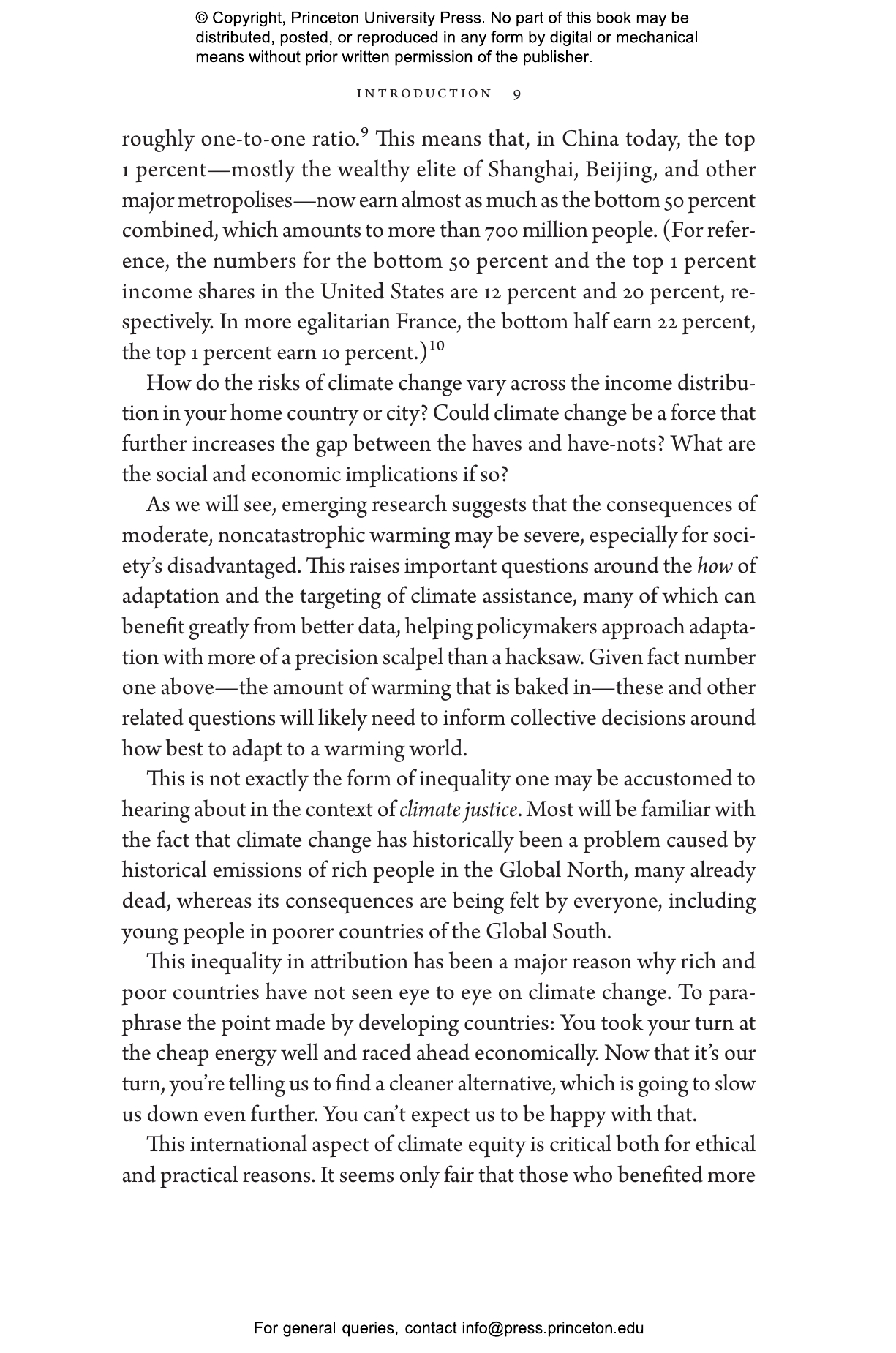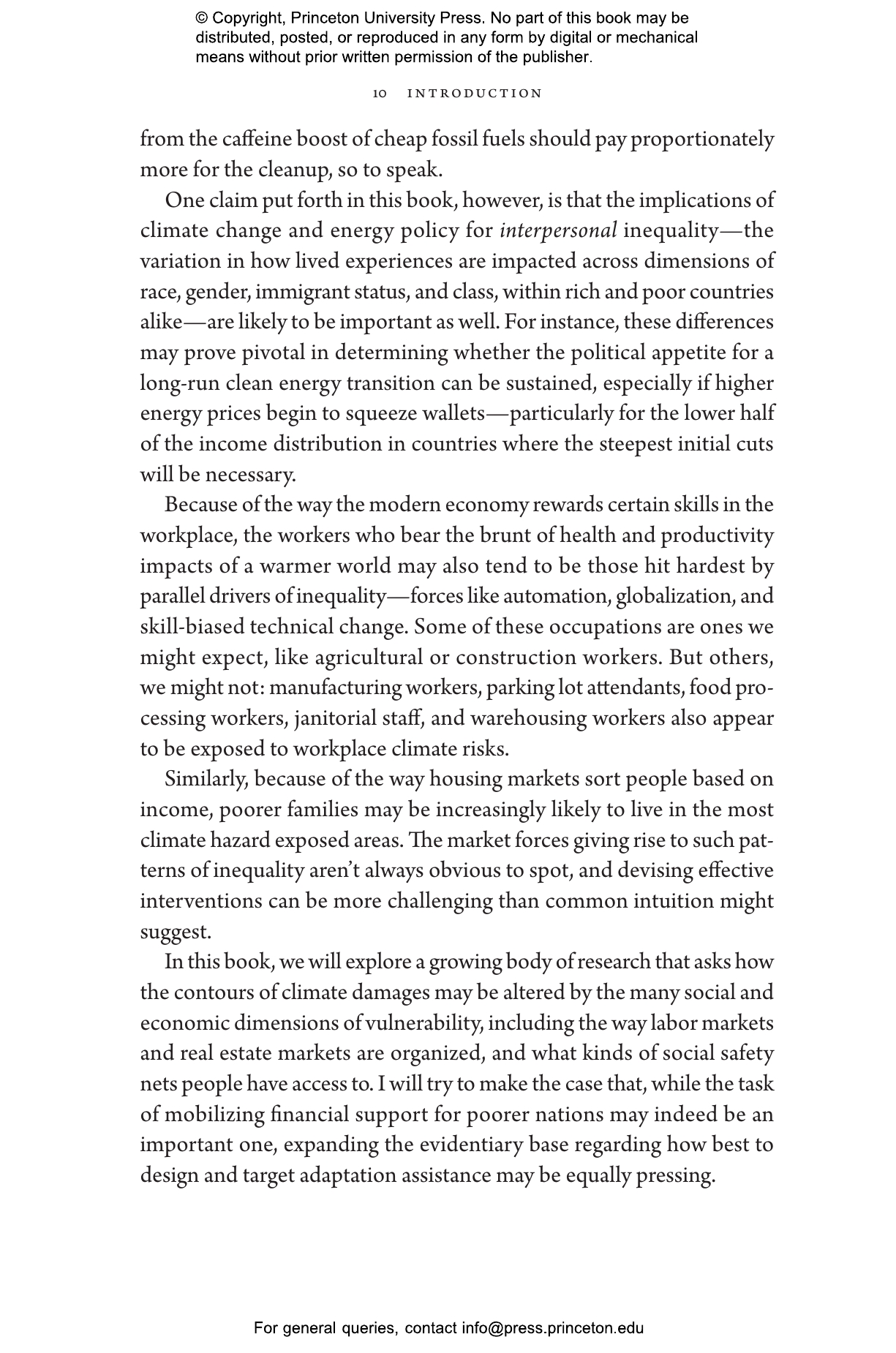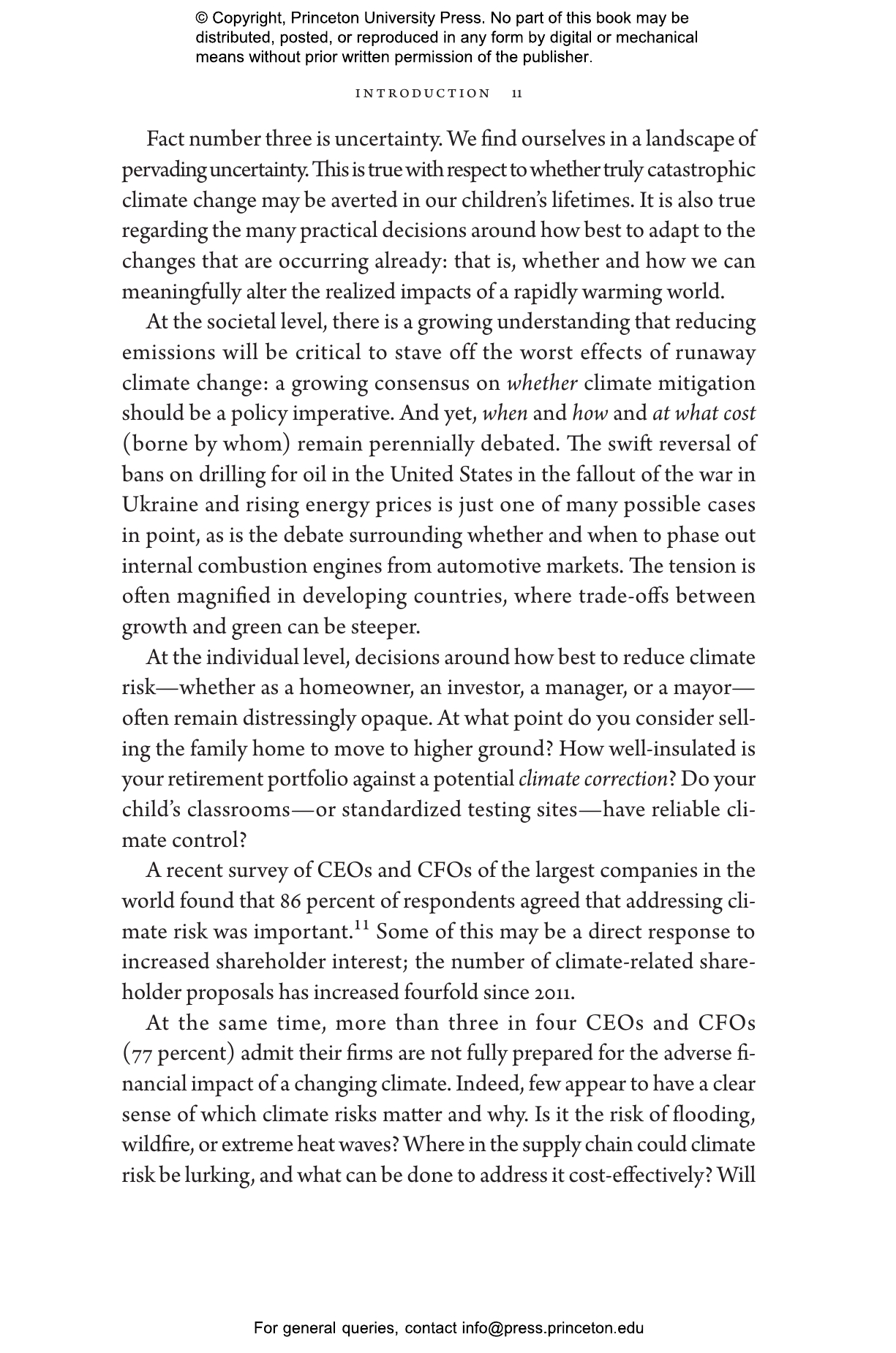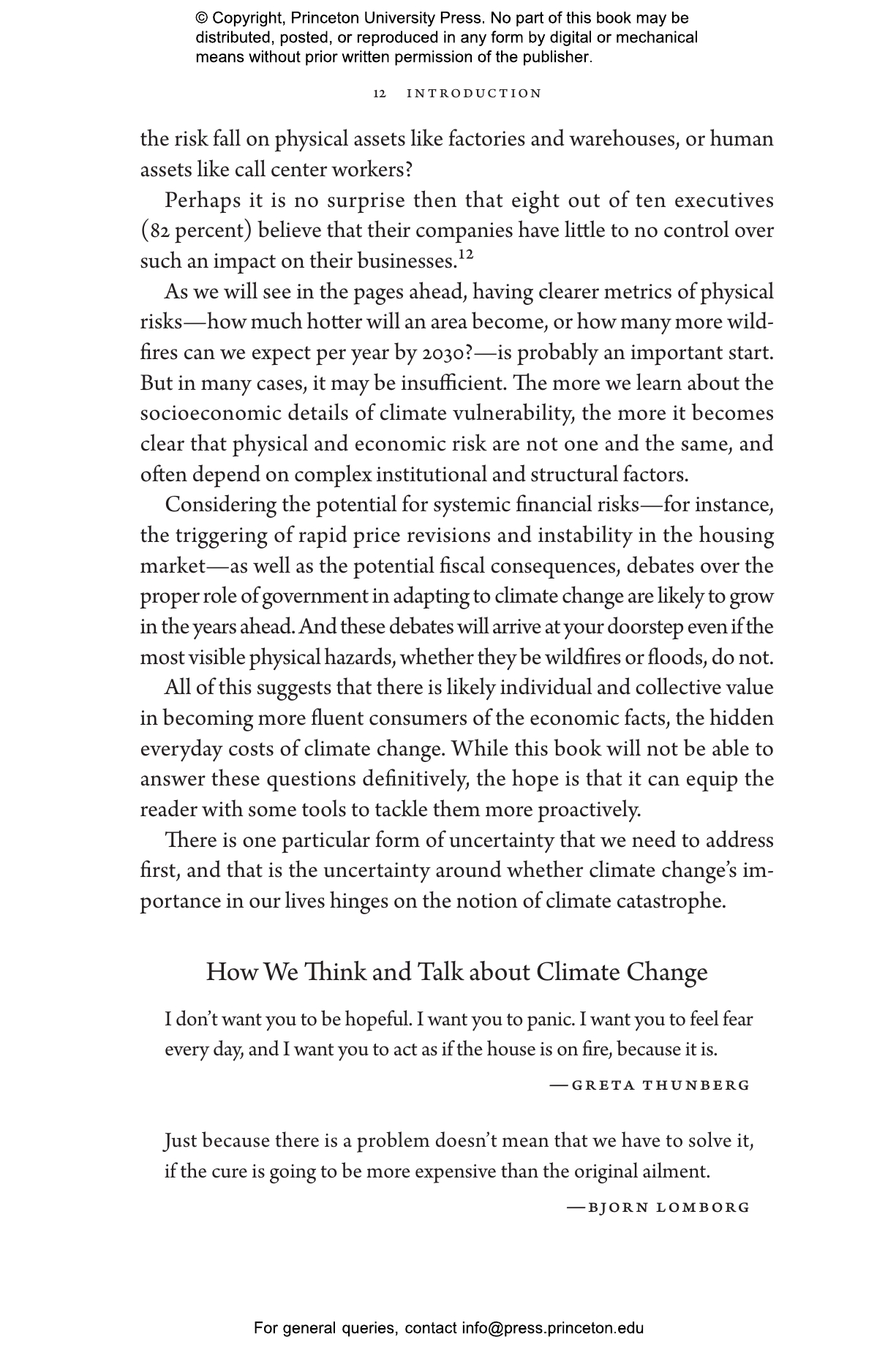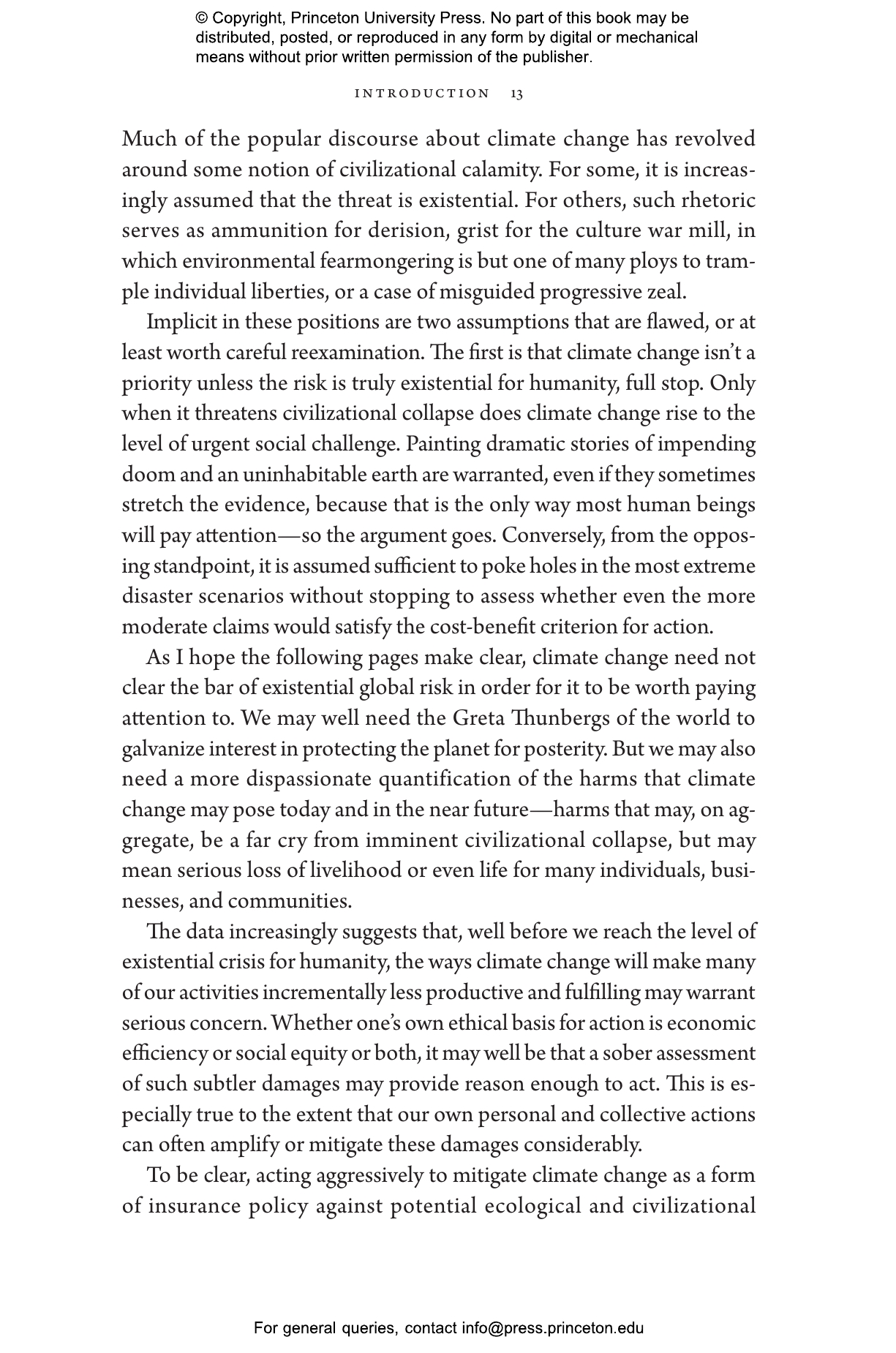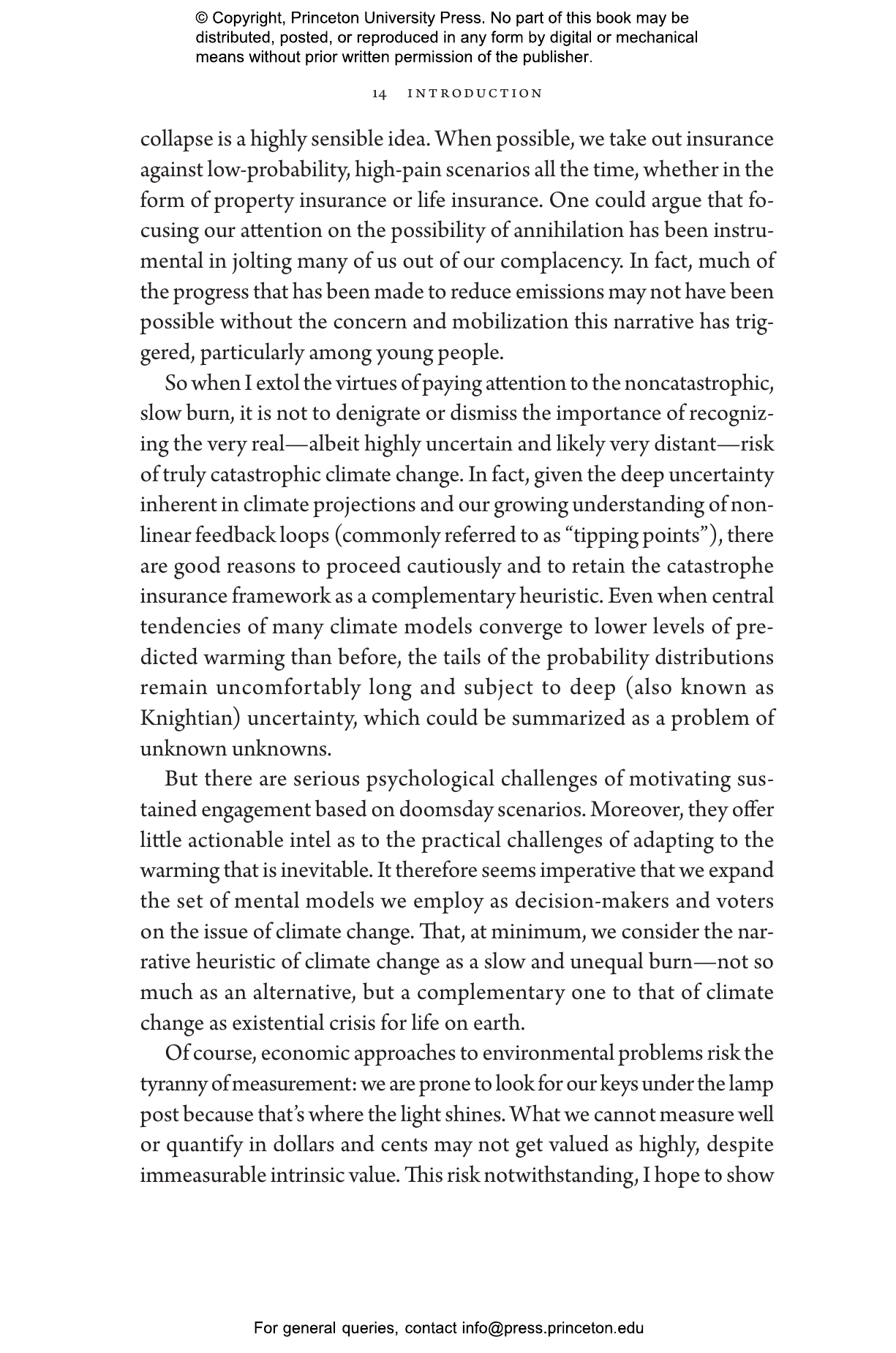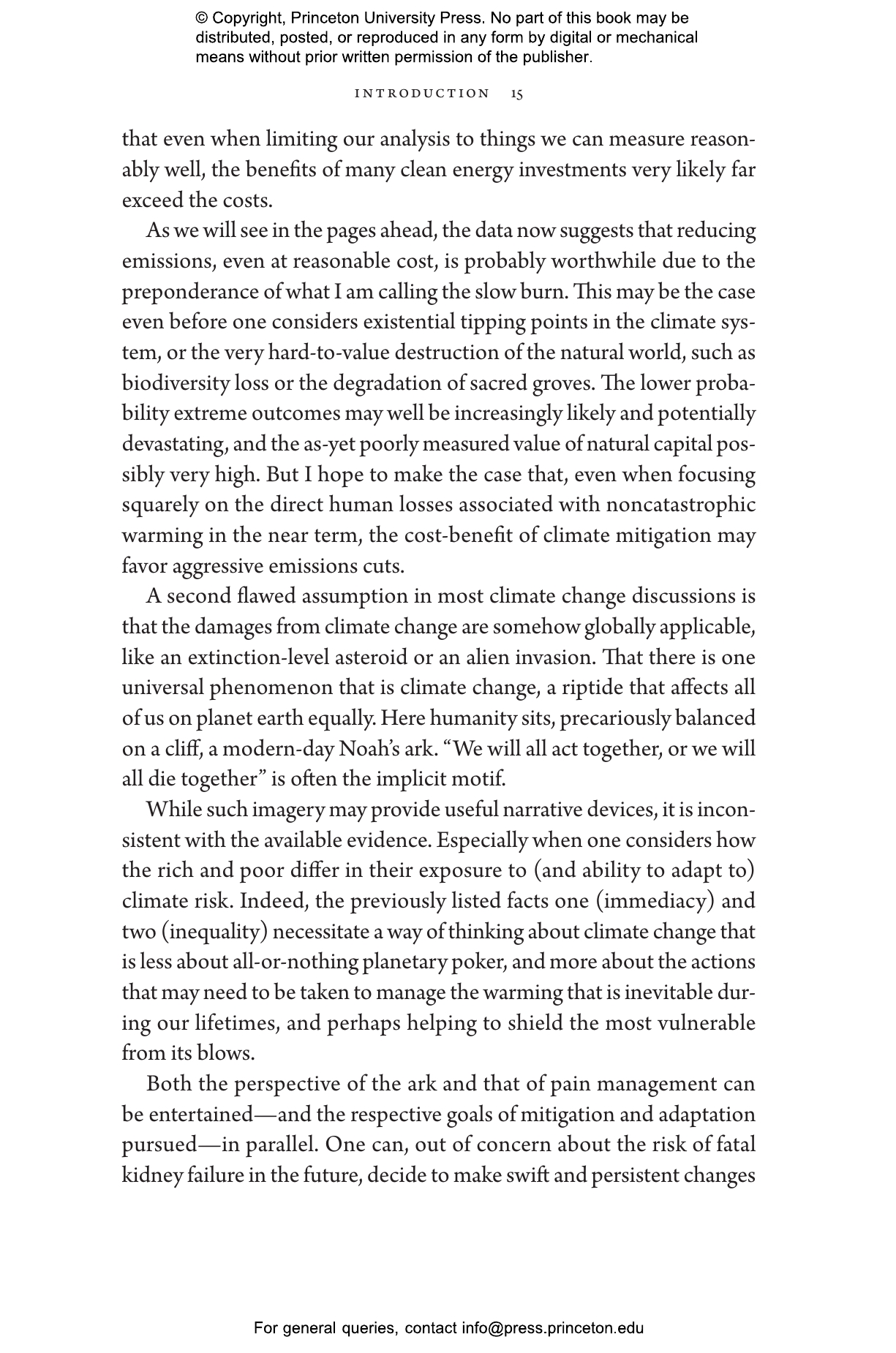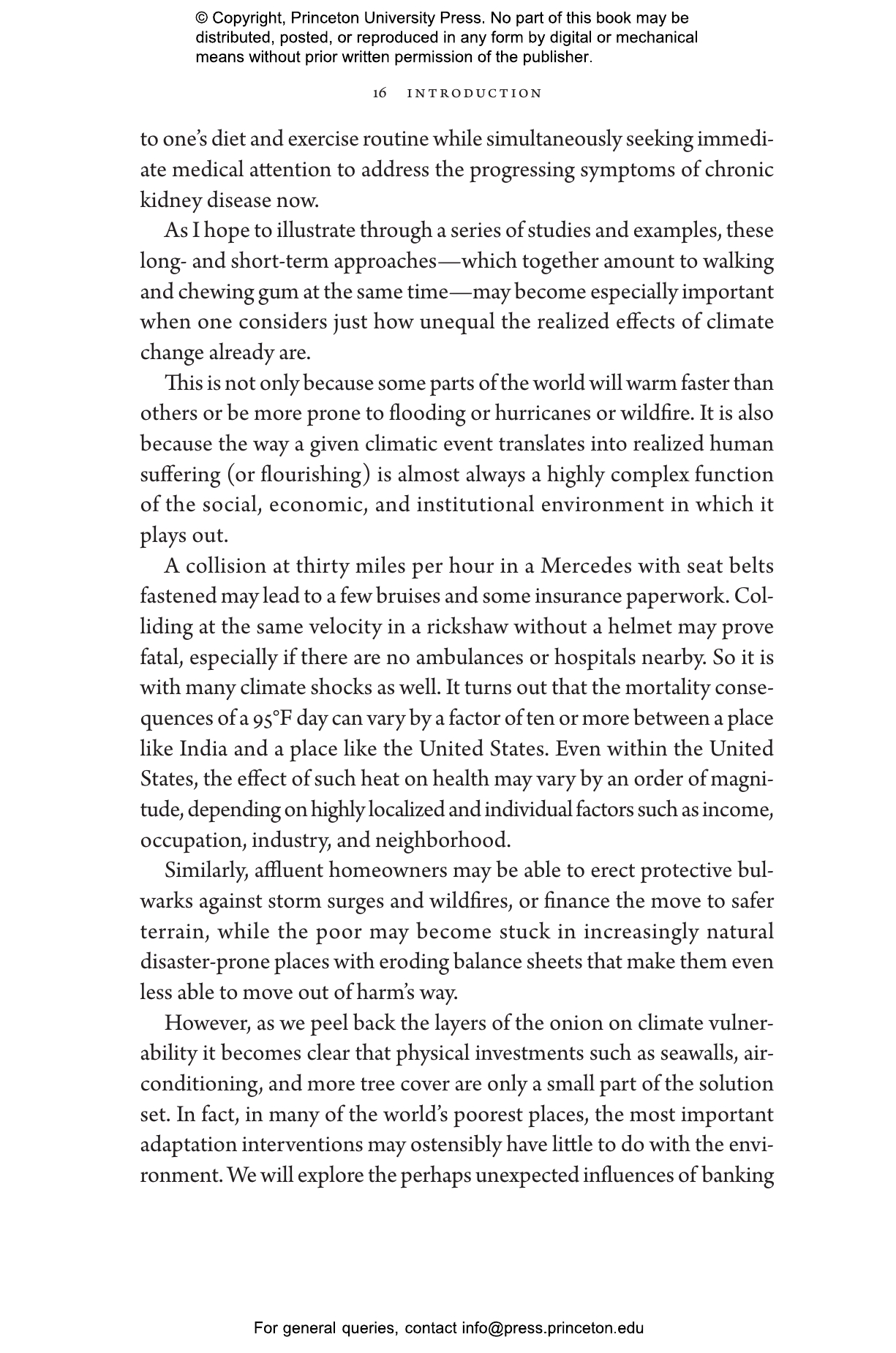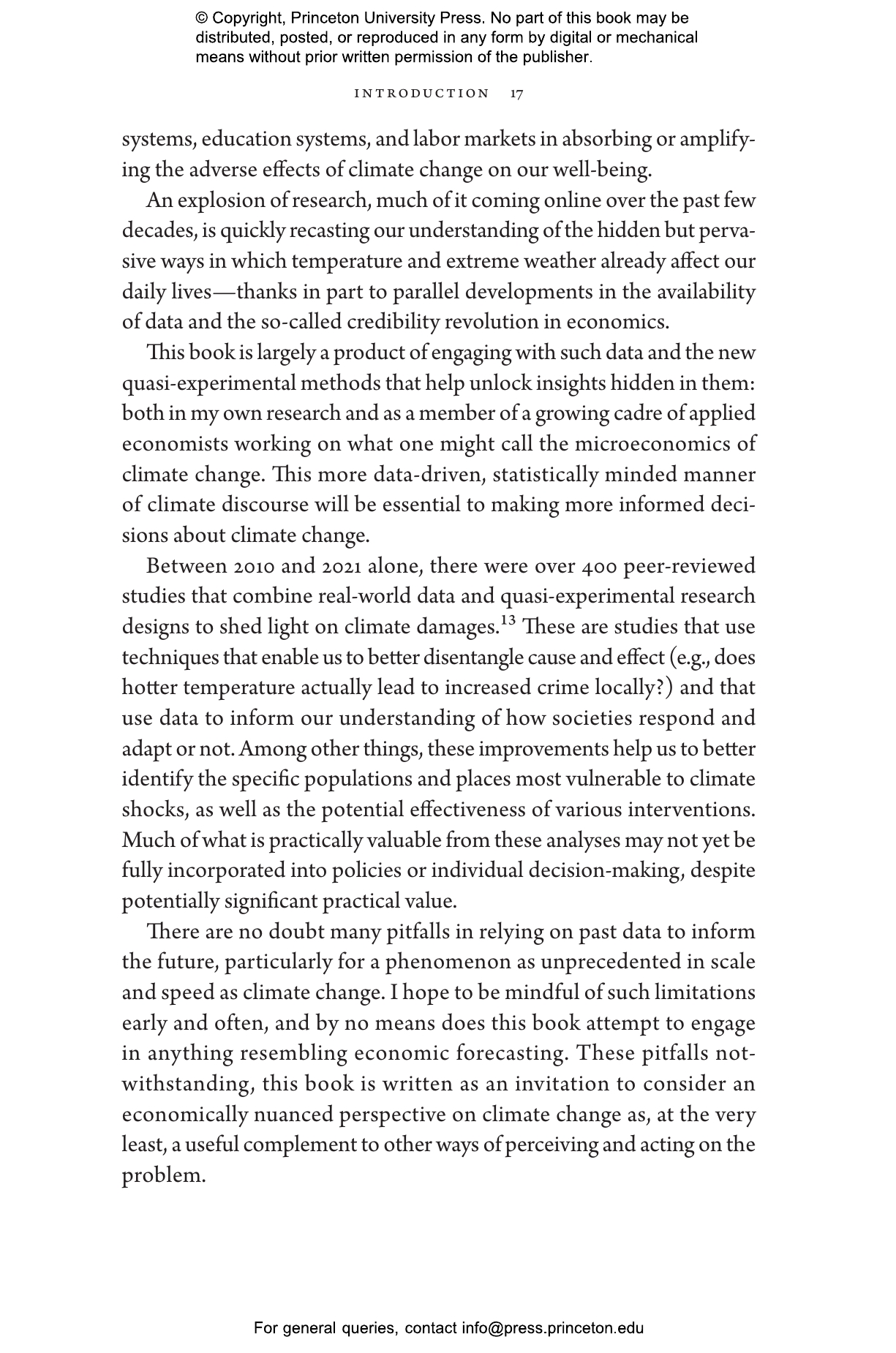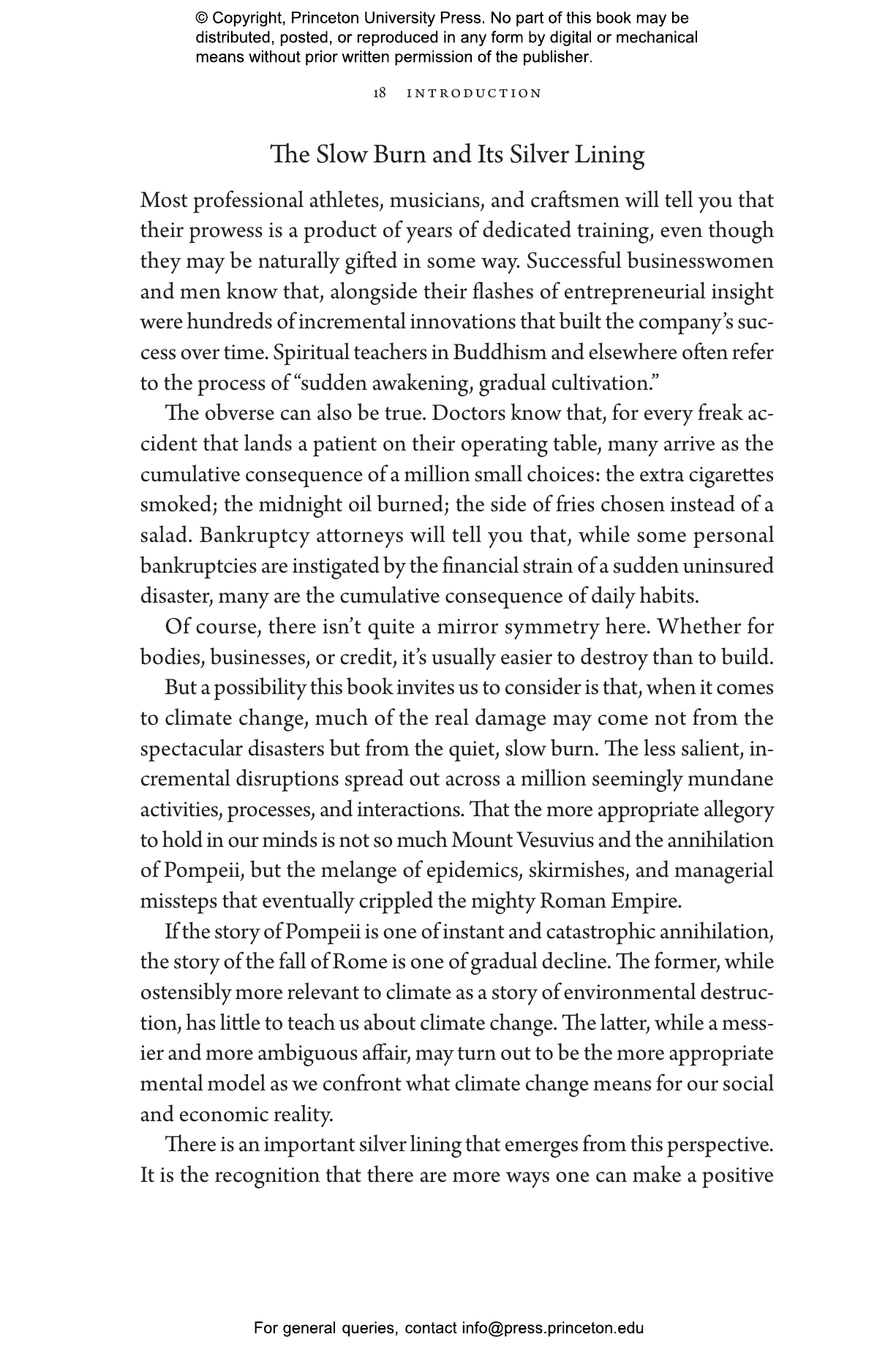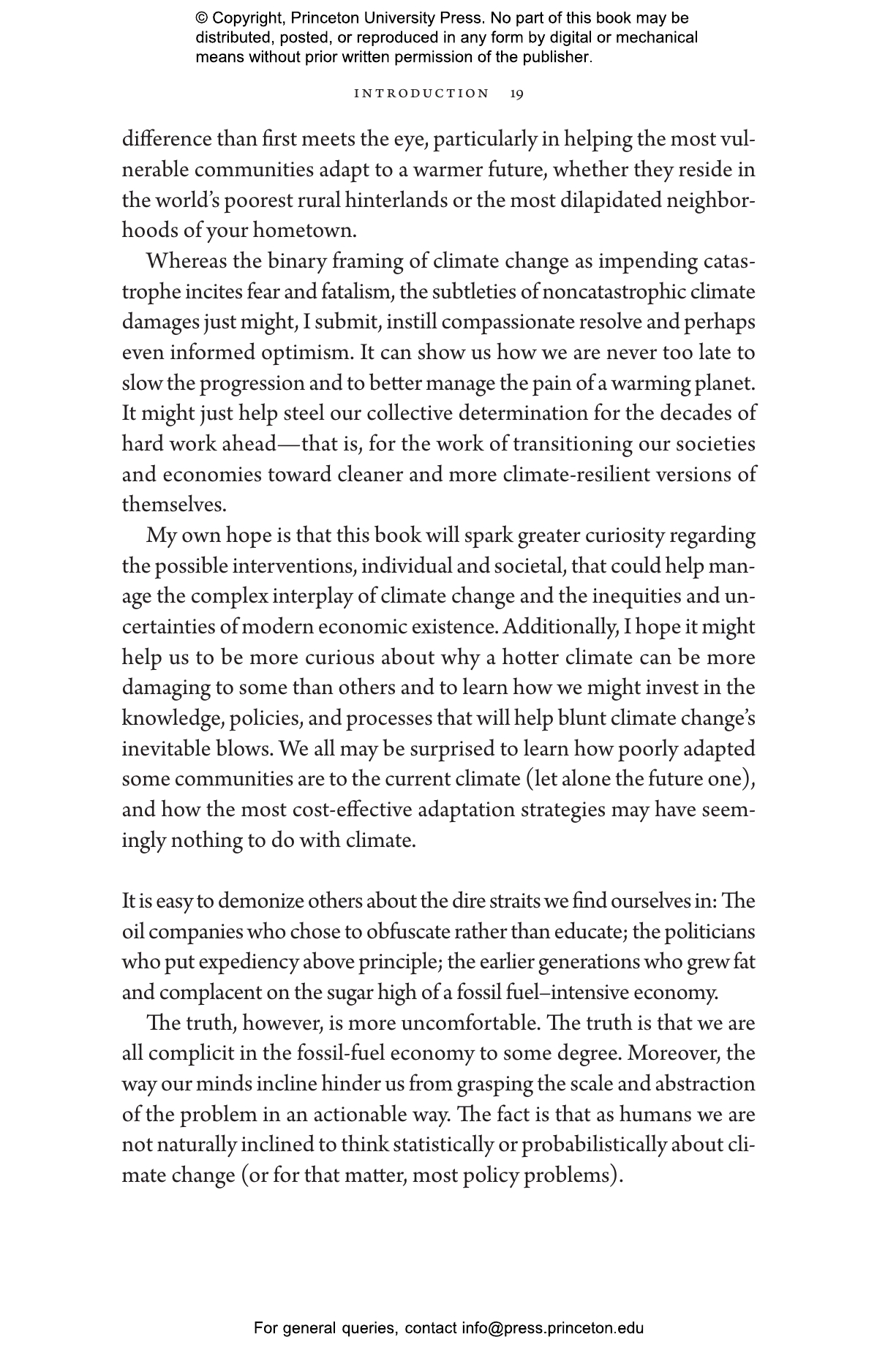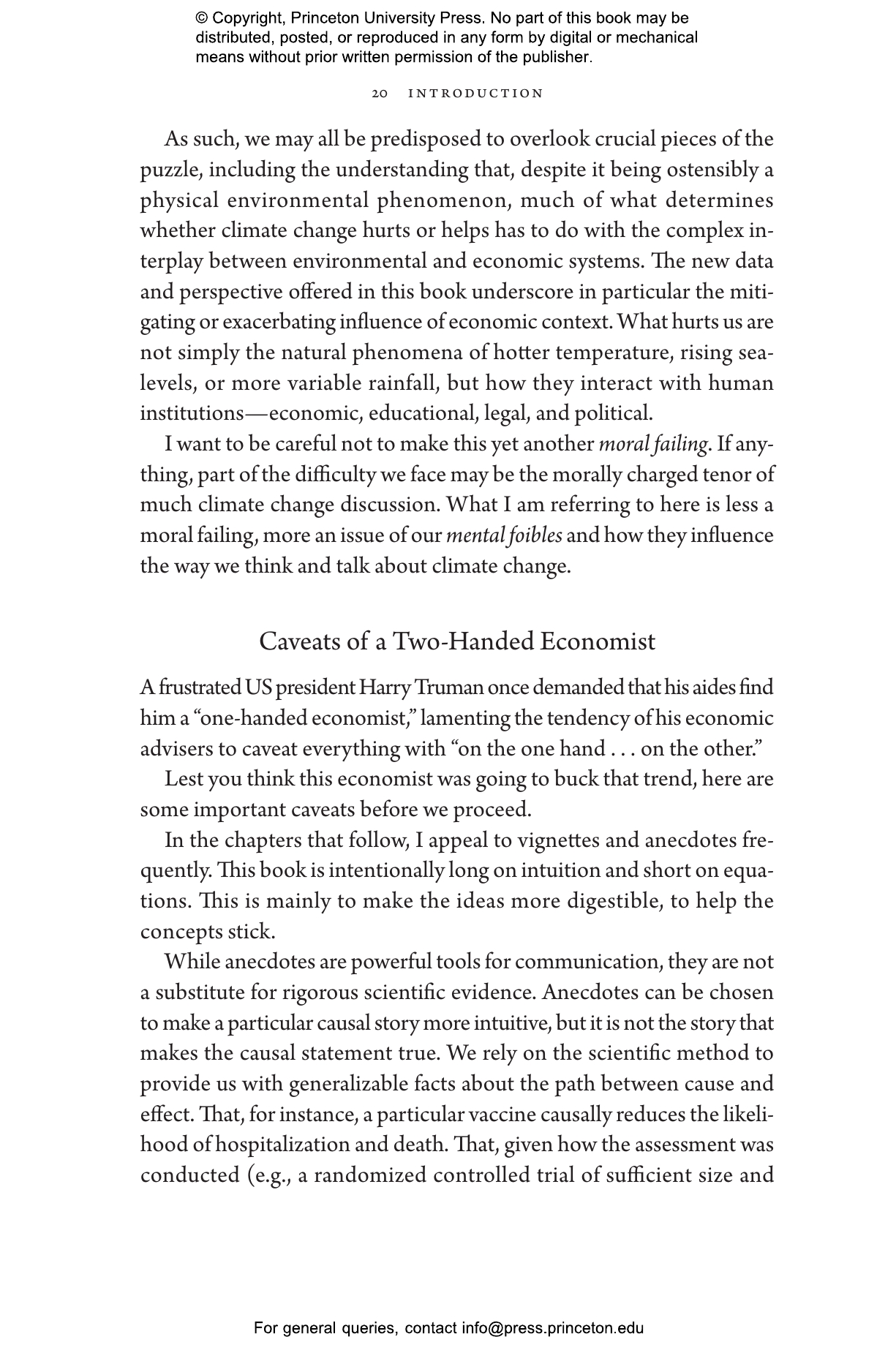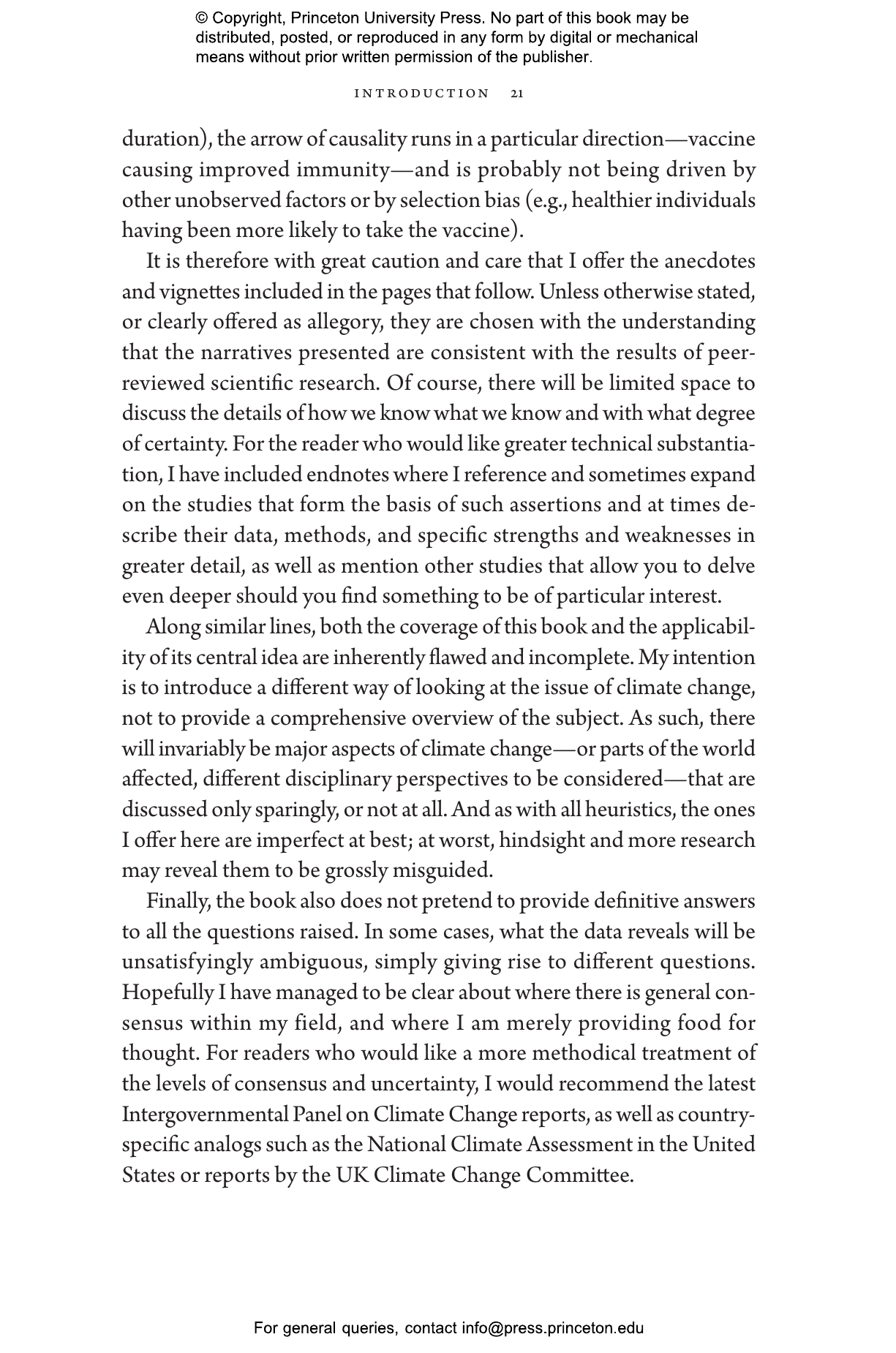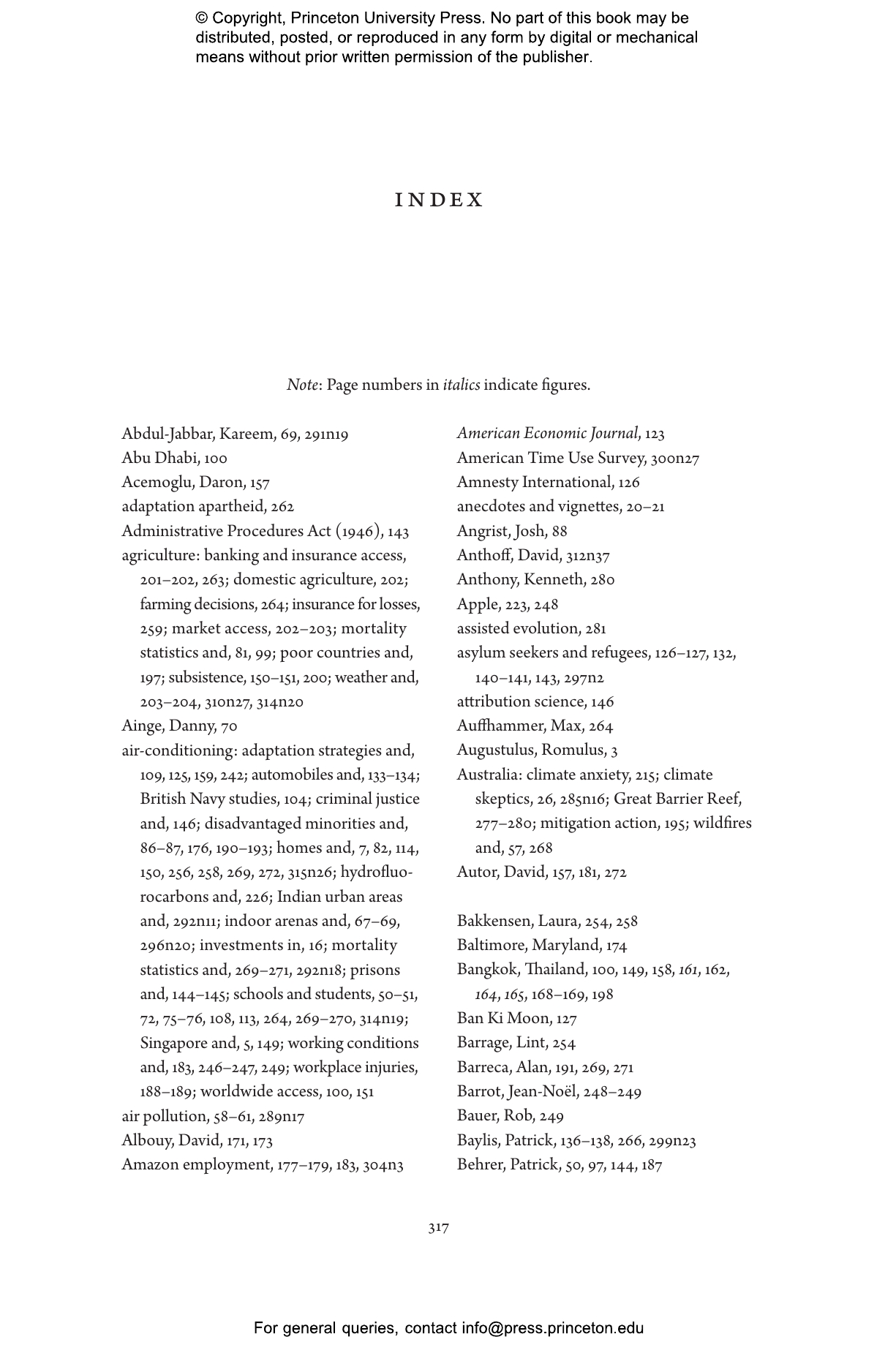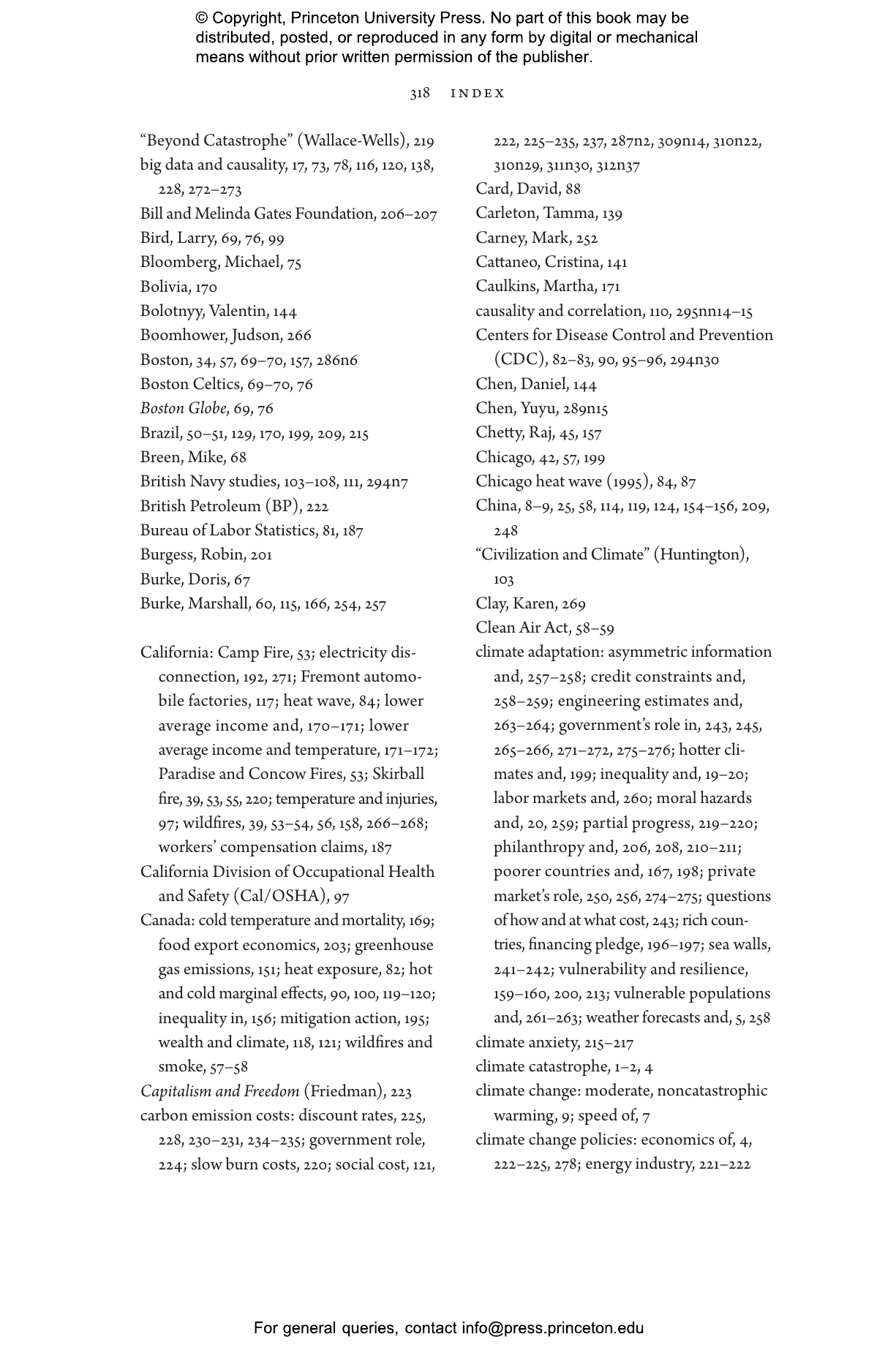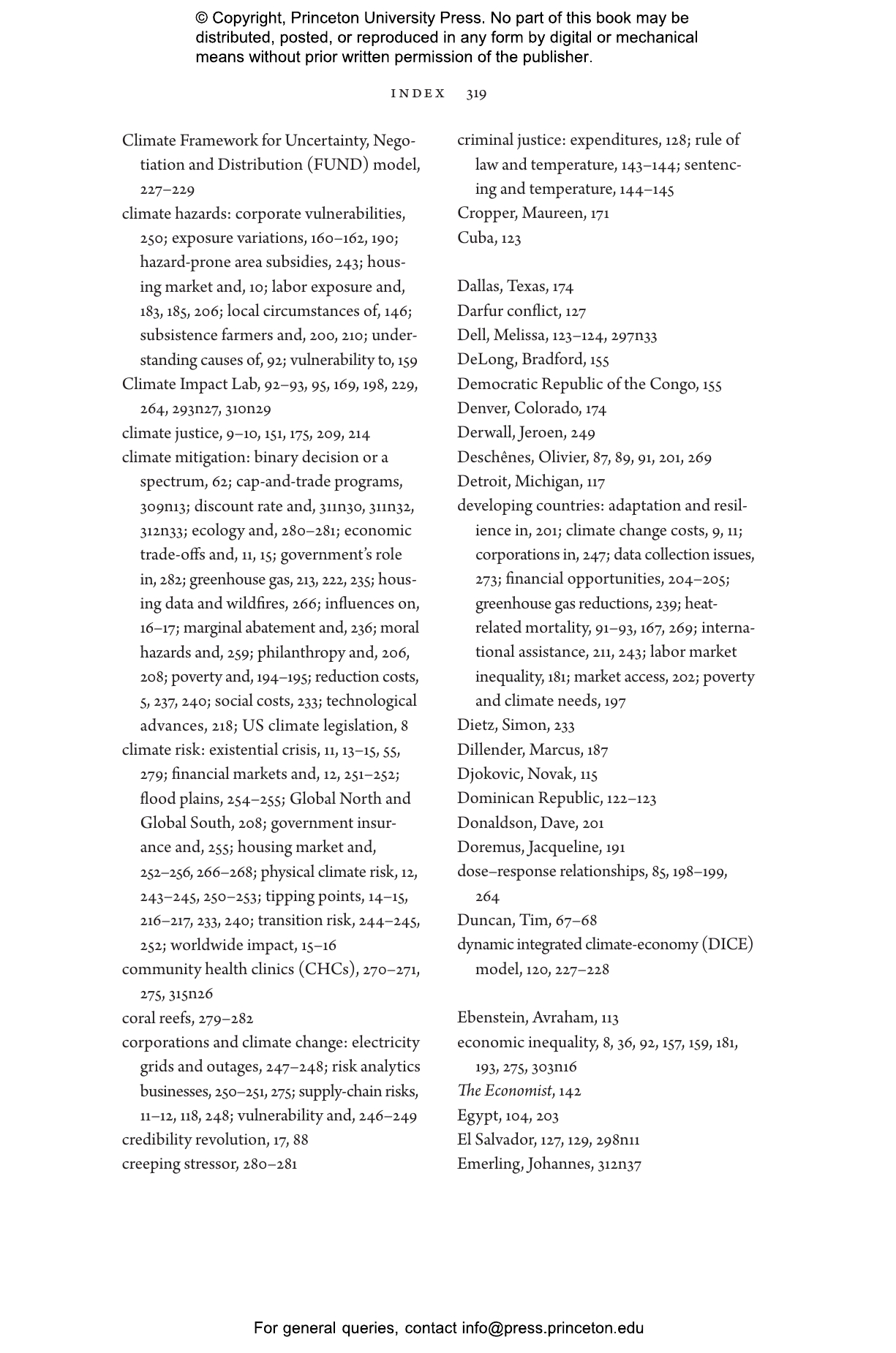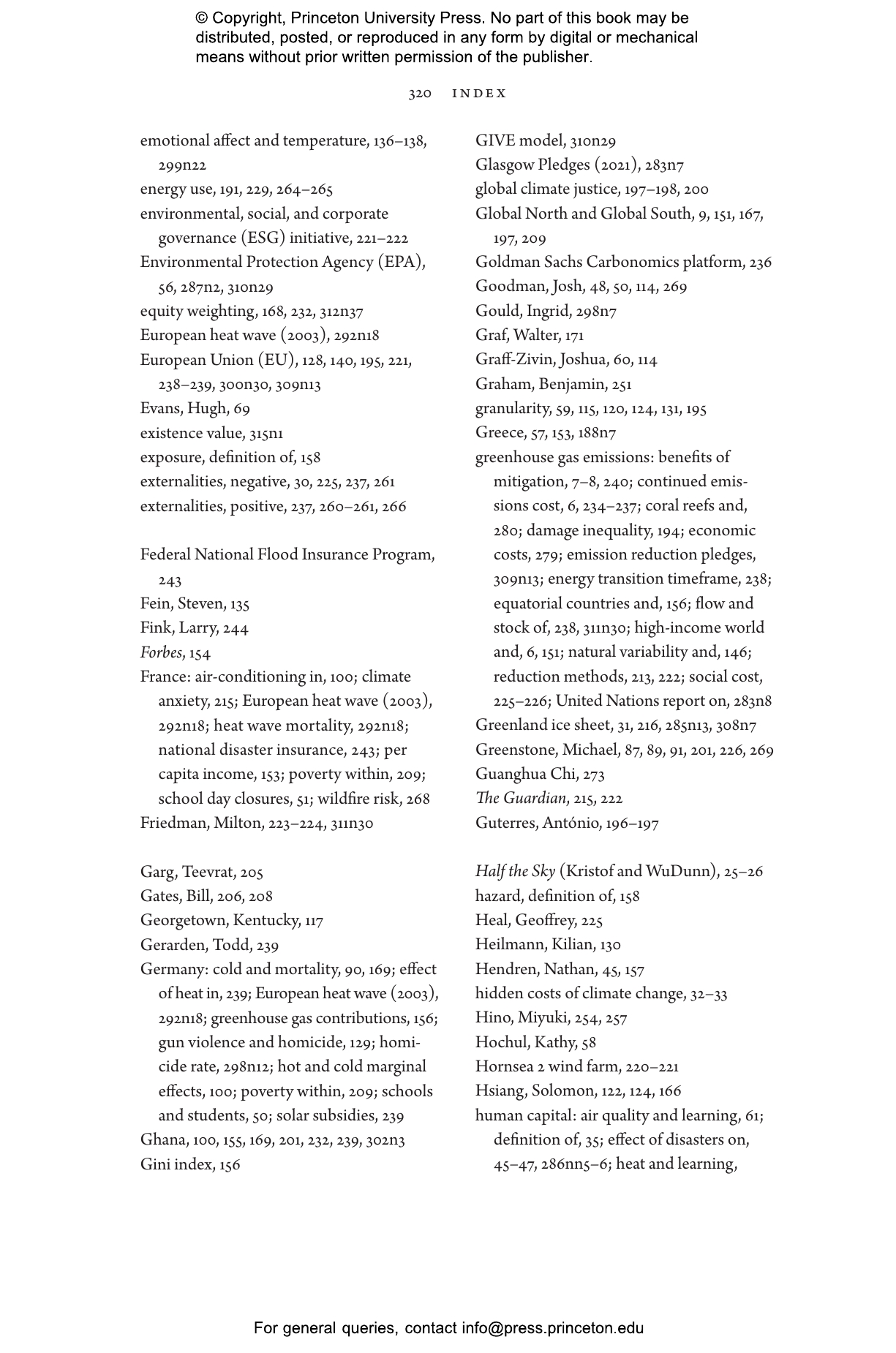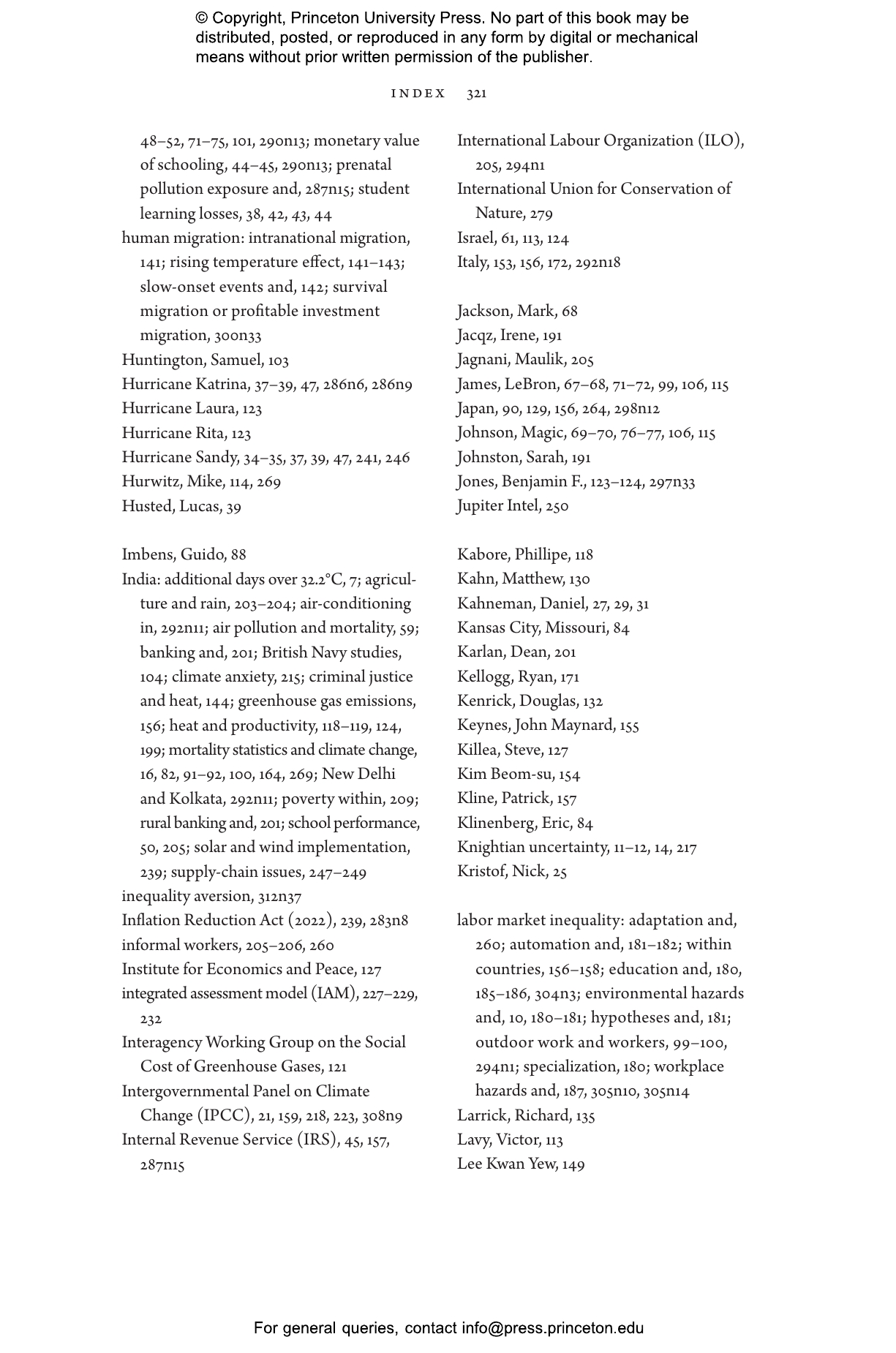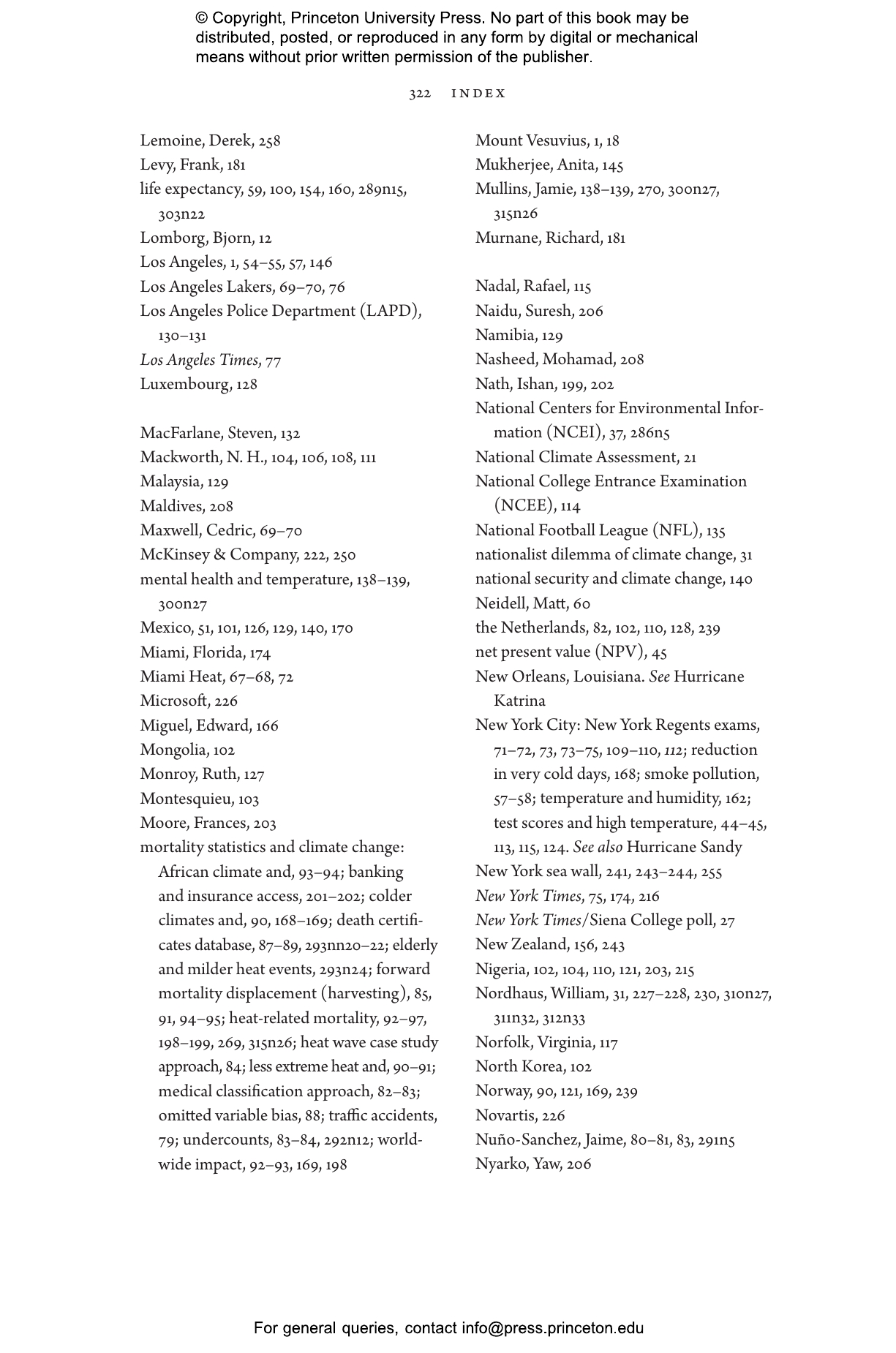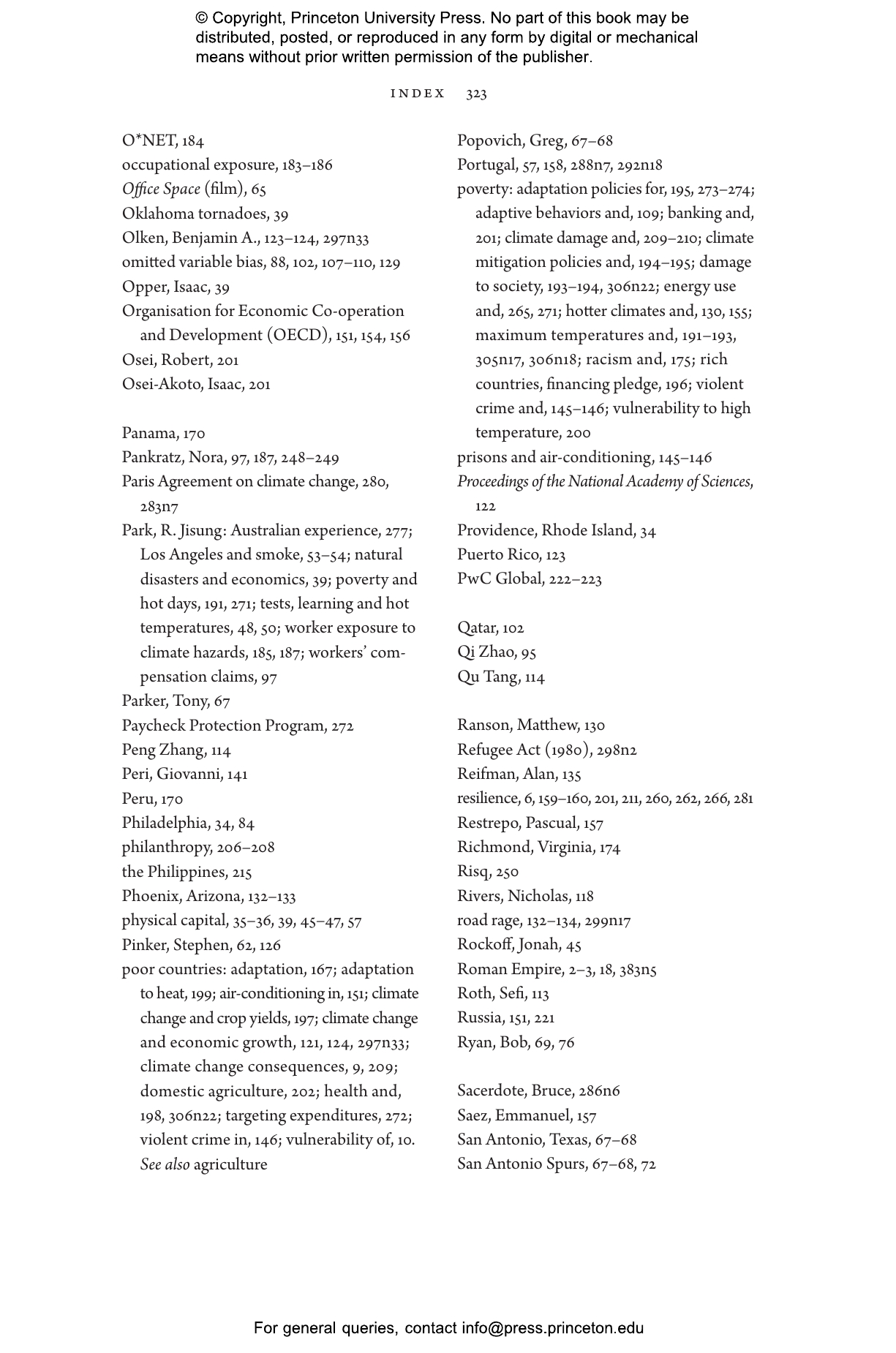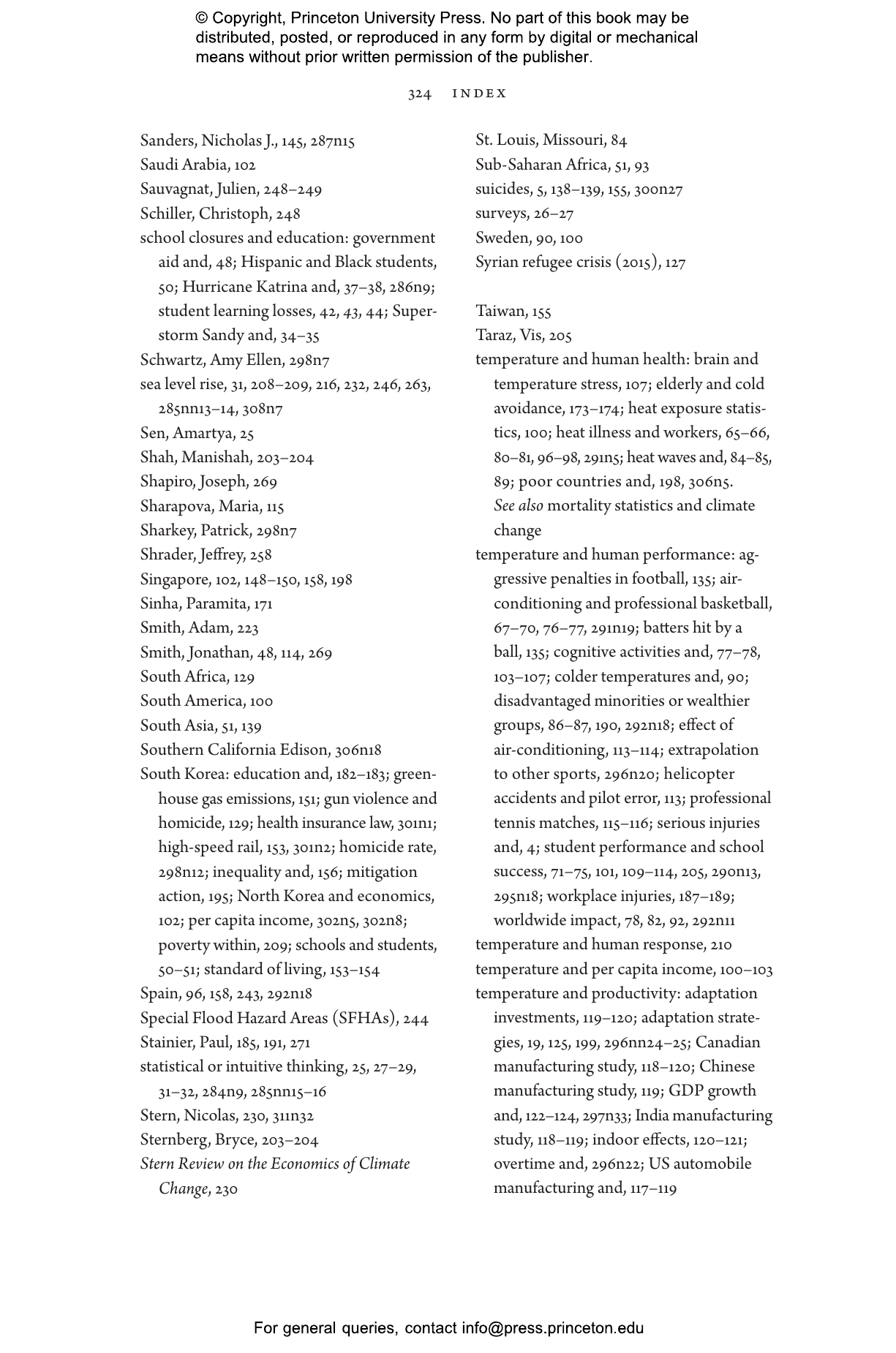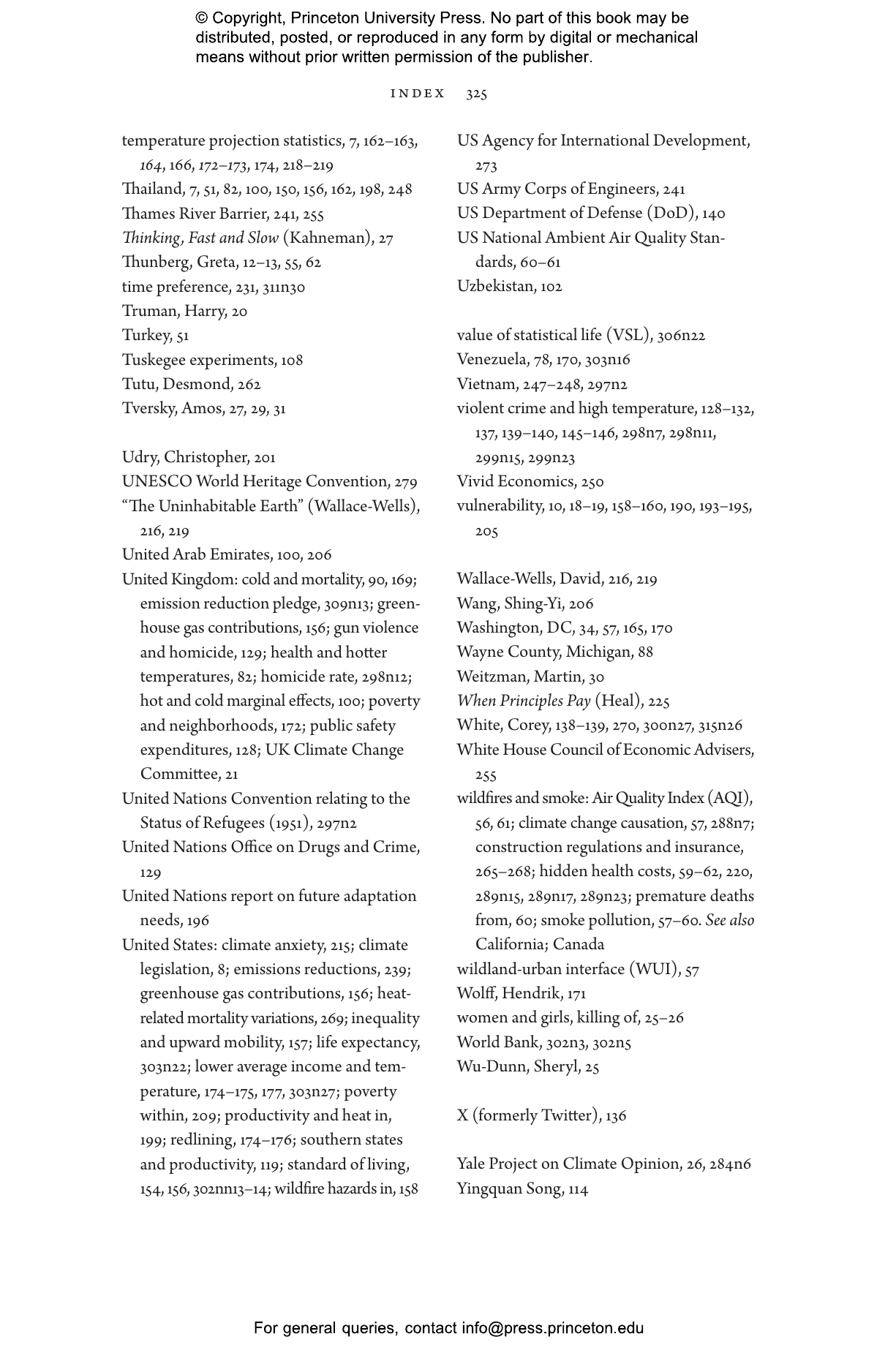It’s hard not to feel anxious about the problem of climate change, especially if we think of it as an impending planetary catastrophe. In Slow Burn, R. Jisung Park encourages us to view climate change through a different lens: one that focuses less on the possibility of mass climate extinction in a theoretical future, and more on the everyday implications of climate change here and now.
Drawing on a wealth of new data and cutting-edge economics, Park shows how climate change headlines often miss some of the most important costs. When wildfires blaze, what happens to people downwind of the smoke? When natural disasters destroy buildings and bridges, what happens to educational outcomes? Park explains how climate change operates as the silent accumulation of a thousand tiny conflagrations: imperceptibly elevated health risks spread across billions of people; pennies off the dollar of productivity; fewer opportunities for upward mobility.
By investigating how the physical phenomenon of climate change interacts with social and economic institutions, Park illustrates how climate change already affects everyone, and may act as an amplifier of inequality. Wealthier households and corporations may adapt quickly, but, without targeted interventions, less advantaged communities may not.
Viewing climate change as a slow and unequal burn comes with an important silver lining. It puts dollars and cents behind the case for aggressive emissions cuts and helps identify concrete steps that can be taken to better manage its adverse effects. We can begin to overcome our climate anxiety, Park shows us, when we begin to tackle these problems locally.
Awards and Recognition
- Longlisted for the Business Impact Award, getAbsract Journal
- Shortlisted for the Business Impact Award, getAbsract Journal
- A Choice Outstanding Academic Title of the Year
R. Jisung Park is assistant professor at the University of Pennsylvania, where he holds appointments in the School of Social Policy and Practice and the Wharton School of Business. An environmental and labor economist, he has been investigating and writing about the economics of climate change for more than a decade. He has advised organizations that range from the World Bank to the New York City Departments of Education and Health.
"Excellent. . . . Professor Park argues persuasively that we have been so focused on apocalyptic scenarios that we haven’t focused enough on the other consequences of climate change."—Nicholas Kristof, New York Times
"Park writes clearly and well, making a strong case for immediate action rather than waiting for the costs to compound—which, over the next couple decades, they are certain to do. A multifaceted look at the many externalities of a warming world."—Kirkus
"[A] deeply researched book. . . . With gripping prose, this book encourages policymakers to consider the many hazards associated with the unavoidable increases in global temperature that the world faces. This is a call to arms addressing one of the most critical issues of contemporary times."—Library Journal (Starred review)
"Enough to make readers break out in a sweat."—Publishers Weekly
"Superbly written, thoroughly researched, and thoughtful. . . . [Slow Burn] is one of the best books on climate policy."—Choice
“In the context of a plethora of tomes about climate change filling bookshelves, this important new work by a brilliant young economist offers something very different—a lucid, balanced, and data-driven analysis of the gradual, long-term, and very real damages of a warming world. In so doing, Jisung Park provides a welcome respite from the extremists at either end of the spectrum, and thereby offers new insights regarding the threat of climate change, as well as valuable and pragmatic guidance about what can be done about it.”—Robert N. Stavins, John F. Kennedy School of Government, Harvard University
“Jisung Park shows clearly why a warming world is such an insidious threat. Heat can harm us in a multitude of ways, and indeed Park demonstrates that it already is doing so. He summarizes extensive scientific evidence that even in the United States, one of the world's richest and best-adapted countries, we are paying a high price for the warming that has already occurred, and will pay even more for what may be to come. This book is compellingly written and is compulsory reading for anyone with an interest in one of the great issues of our time.”—Geoffrey Heal, Columbia Business School
“Park adds a new dimension to our understanding of climate impacts, by focusing less on the huge dramatic consequences (wildfires the size of Rhode Island) and more on the intimate changes that a heated world produces (say, more aggression and violence). It’s a novel idea, and well presented.”—Bill McKibben
